Activity Reports
HOMEReports
Report for Overseas Joint Research
2026.2.25
“Quantum Leader Human Resources (QLEAR)”Fellowship supports students who would like to have the overseas joint research for any quantum technology research organizations in abroad.
Please refer the report for the experiences of the overseas joint research 2025.
report for the experiences of the overseas joint research 2025
Name:Chen Yitong
Organization :MPI CPfS
Country:Germany
Duration:2025.8.25-2025.11.29
・What made you decide to do joint research overseas?
2024年9月から12月にかけて、同研究所にて3か月間の共同研究を行いました。その際、与えられた研究テーマを無事に完遂することができたうえ、私がこれまで取り組んできた研究テーマに対して相補的な実験を実施できることが分かりました。そこで訪問先の先生方と打ち合わせを重ね、前回の帰国直前に今回の海外共同研究を実施することを決定しました。
・What preparations did you make before leaving for overseas joint research?
訪問先からビザ申請に必要な書類を獲得したから出発予定日の三ヶ月以上前にドイツ大使館にビザの申請を提出しました。また、コンセントのプラグが日本と異なるため、変換プラグを多めに用意しました。その他は普段の国内出張と同じ感じで準備しました。
・How did you feel after participating in joint research overseas?
普段とは異なる環境や装置を用いて実験を行い、新しいノウハウを学ぶことができ、大変刺激的で充実した時間でした。前回の滞在経験があったため、今回は環境に慣れる期間をほとんど必要とせず、到着後すぐに研究に取り組むことができました。また、1年ぶりに友人や共同研究者の方々と再会し、再び一緒に研究を進められたことをとても嬉しく感じました。
・Did you find the research interesting or difficult during the overseas joint research?
今回の滞在中、装置の不調により実験を数回中断せざるを得ませんでした。修理・復旧作業に合計で1か月以上を要し、当初の研究計画を見直す必要がありました。そのため、先生方と綿密に打ち合わせを重ね、実験スケジュールを何度も再構築しました。その結果、最終的には必要なデータセットを取得することができました。一方で、装置の復旧作業を通じて、通常の実験では触れることのない内部構造を自ら解体・修理する経験を得ることができました。この経験により、装置の原理や構成への理解が大きく深まり、非常に貴重な学びとなりました。
・How did you interact with professors and researchers?
ドイツでは教授に対してもファーストネームで呼び合う文化があり、日本と比べて教員と学生の距離が近く、気軽に相談できる雰囲気がありました。実験に関する内容はその場でリアルタイムに議論することができました。
また、週に1回のプログレスミーティングが開催され、研究の進捗をグループ全体で共有する体制が整っていました。そのため、実験計画の見直しもスムーズに行うことができました。
・How was the living environment during the overseas joint research? What about housing arrangements, prices, how to spend your vacation, etc.?
滞在先であるドレスデンは自然が美しく、歴史ある街並みが良く保存された魅力的な都市でした。交通機関もトラム(路面電車)、バス、鉄道が整備されており、生活に不便を感じることはありませんでした。住居は訪問先が手配してくださり、研究所に隣接した宿舎であったため、通勤時間は約5分と非常に便利でした。物価は日本と大きな差はありませんが、果物や野菜は比較的安価でした。一方で、多くの店舗が日曜日に閉まること、ペットボトルや缶・瓶にデポジット(Pfand)が付いており、スーパーで返却する必要がある点には注意が必要です。休日には、友人と市内を散策したり、博物館を訪れたりして過ごしました。
・What has changed since the end of the overseas joint research?
今回の滞在では、周囲の協力を得ながら研究を進める必要があり、より主体的にコミュニケーションを取り、協働する力を養うことができました。
また、ドイツではワークライフバランスが重視されており、多くの研究者が朝早く出勤し、夕方には退勤していました。その影響もあり、早起きして集中して仕事を進める習慣が身につきました。
・How has the experience of overseas joint research been useful after returning to Japan?
海外共同研究で実施した内容は、私の博士研究を補完する重要な実験でした。その成果により、博士課程の研究を完成させ、博士論文をまとめることができました。
また、滞在中に分子線エピタキシー装置の原理や構成、絶縁体基板の取り扱いに関する知識と技術を習得しました。帰国後は、研究室装置の改良や新たな研究プロセスの構築にその経験を活かしています。
・How will you make use of your experience in overseas joint research in the future?
語学力や研究能力の向上に加え、今回の滞在では私の研究テーマに参加するインターン学生の指導も担当しました。研究を進めながら、学生への指導や役割分担を考える経験は非常に貴重でした。将来、大学教員として研究と教育の双方に携わる上で、この度の海外共同研究で得られた経験は大きな財産になると考えています。
・Do you have any advice or message for those who are considering overseas joint research?
もし海外共同研究に行くかどうか迷っているのであれば、まずは思い切って先方にメールを送ってみることをお勧めします。想像以上に話がスムーズに進み、共同研究が実現することもあります。
海外に行くことに対して過度に不安を抱く必要ありません。先入観を持たず、柔軟な姿勢で臨めば、多くのことは乗り越えられる感じました。
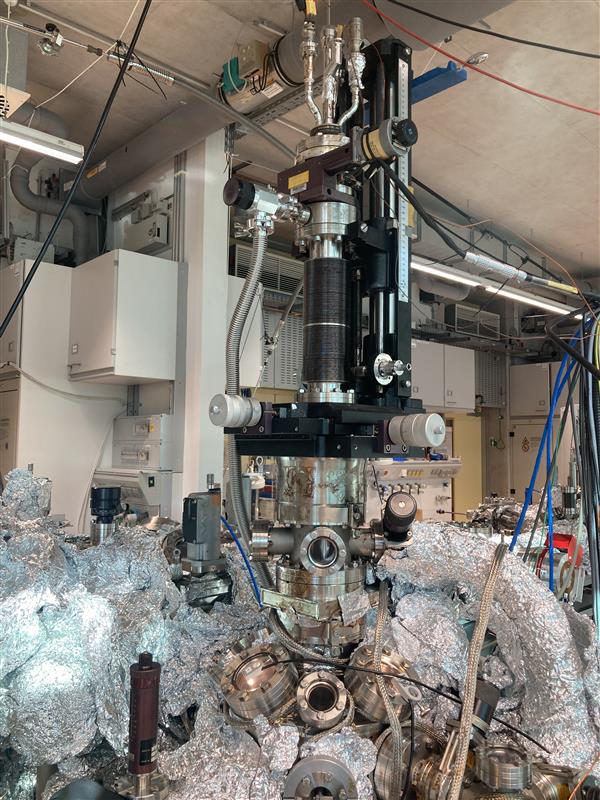
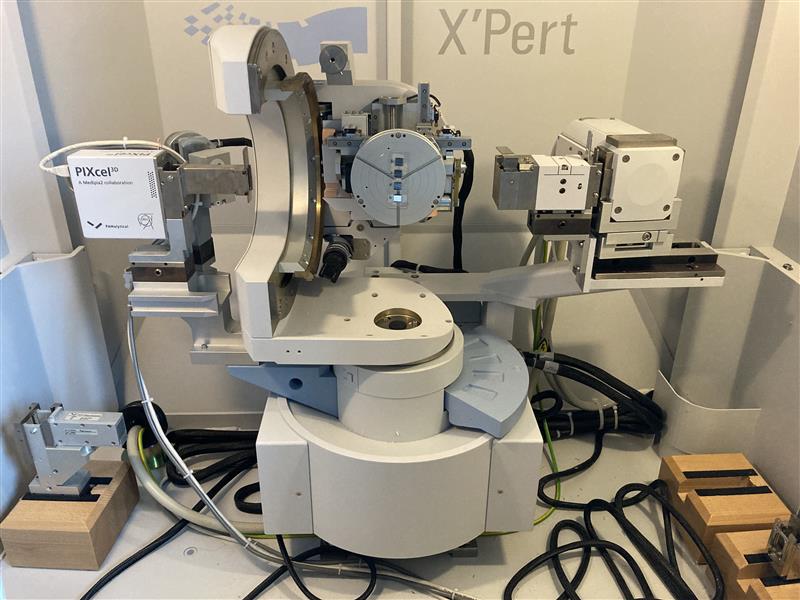
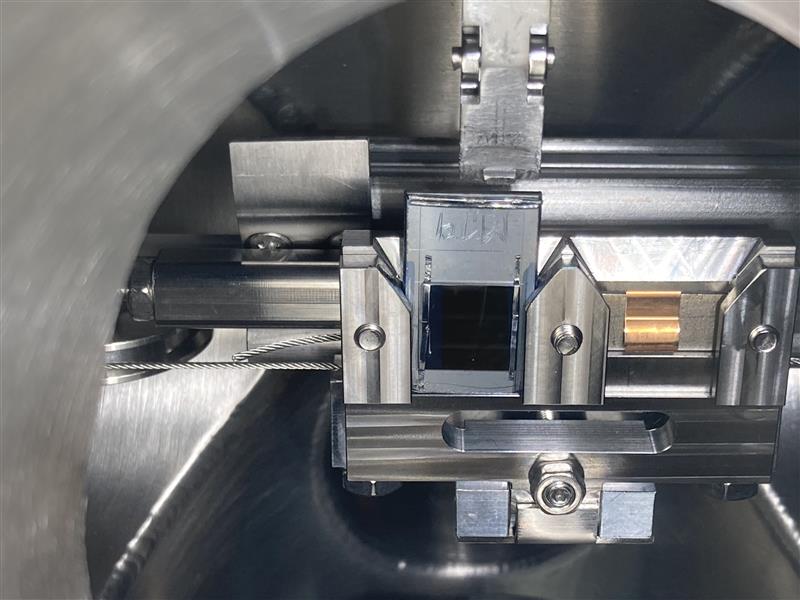
Report for Overseas Joint Research
2025.12.17
“Quantum Leader Human Resources (QLEAR)”Fellowship supports students who would like to have the overseas joint research for any quantum technology research organizations in abroad.
Please refer the report for the experiences of the overseas joint research 2025.
report for the experiences of the overseas joint research 2025
Name:Keita ONO
Organization :National Kaohsiung Normal University
Country:Taiwan
Duration:2025.9.24-2025.10.22
・What made you decide to do joint research overseas?
私は中性K 中間⼦という、2 つの素粒⼦からなる粒⼦の稀な崩壊を探索する国際共同実験に参加しています。
National Kaohsiung Normal University(NKNU)に共同研究者のYu-Chen⽒がおり、そこで機械学習を⽤いて信号と背景事象を区別する分類モデルを開発してみたいと思いました。Yu―Chen⽒は機械学習に精通している⽅で、実際に実験の解析の⼀部に深層学習を取り⼊れた分類モデルで、⼀部の背景事象削減に⼤きく貢献されています。そのため、Yu-Chenのもとで分類モデルを開発することが、機械学習に対する理解をより深め、信頼性の⾼い新たな分類モデルを効率的に構築できると考えてNKNUでの海外共同研究を決めました。
・What preparations did you make before leaving for overseas joint research?
Yu-Chenとメールで連絡をし、具体的な⽇程と期間を決めました。また、滞在場所も⼤学内のゲストハウスで滞在できるよう事前に相談しました。また、メールだけでなく、ミーティングでお会いした時に、どういう順番で研究を進めていくかも事前に相談していました。私は1ヶ⽉という短い期間だったので機械学習に関する予備知識は事前に勉強していきました。
・How did you feel after participating in joint research overseas?
海外共同研究で特に印象に残ったのは、研究室内のコミュニケーションがとても活発だったことです。私はYu-Chen ⽒の研究室で、学⽣の⽅々と同じ部屋で研究していました。研究テーマはそれぞれ異なっていましたが、お互いに質問し合い、不⾜している部分を補い合い、共通する内容について積極的に議論する雰囲気がありました。その結果、各⾃の研究が効率的に進んでいるように感じました。私⾃⾝も、Yu-Chen ⽒だけでなく学⽣の皆さんとも頻繁に議論することで、よりスムーズに研究を進めることができたと思います。
・Did you find the research interesting or difficult during the overseas joint research?
私⾃⾝、機械学習に関する知識は浅かったので、どういう構造にすると良いのかを順番に説明してもらい、その説明をもとにモデルを修正してみて、より性能の良い分類モデルになった時は、とても達成感がありました。国内であまりやったことのない分野を、エキスパートのもとで1から学んで、成果をあげられるのが海外共同研究中の研究の⾯⽩さの⼀つだと思います。
その⼀⽅、モデル開発は試⾏錯誤の繰り返しで、その中から正解を探すのにはとても苦労しました。しかし、この試⾏錯誤のおかげで、機械学習についてより深く理解することができたと感じています。
・How did you interact with professors and researchers?
先⽣や学⽣との交流はとても活発で、平⽇は毎⽇研究室に来て、研究の話だけでなく何気ない雑談もたくさんしました。
休⽇は皆でご飯に⾏ったり観光に⾏ったりして仲を深めました。
・How was the living environment during the overseas joint research? What about housing arrangements, prices, how to spend your vacation, etc.?
住居は⼤学内のゲストハウスに宿泊しました。Yu-Chen ⽒と事前にメールで相談して決めました。台湾の物価は、⽐較的安く、特に⾷事は安くて美味しいものがたくさんあったのでとても居⼼地が良かったです。休⽇は、基本的には観光に⾏ってリフレッシュしていました。
・What has changed since the end of the overseas joint research?
初めは、台湾での⻑期滞在がまるで想像できませんでした。特に、⾔語の壁がとても⼼配していました。しかし、いざ滞在してみると、意外となんとかなるというのが最初に思ったことでした。他にも、⼾惑うことはありましたが、徐々に慣れて最後にはとても居心地の良い滞在になりました。
・How has the experience of overseas joint research been useful after returning to Japan?
これまでは、海外の⼈と話すのに抵抗感があったのですが、帰国後は抵抗感なく⾃然に話せるようになってきました。 また、研究を進めていく上で、コミュニケーションの必要性には改めて気付かされました。帰国後は、より⼀層指導教員や他の共同研究者と積極的に語論するようにしています。
・How will you make use of your experience in overseas joint research in the future?
海外共同研究を通して、これまで精通していなかった機械学習に関する知識や技術を⾝につけることができ、新しいことにチャレンジする魅⼒に気づきました。また、⽇本と海外での⽂化の違い、特に研究に関する⽂化の違いを知ることができました。今後は、これらの体験を⽣かして、積極的に未知のことにもチャレンジし、⾃⾝の幅を広げて将来に繋げていきたいと思います。
・Do you have any advice or message for those who are considering overseas joint research?
海外共同研究は、海外の⽂化を学べるという観点でぜひいくことをお勧めします。海外で研究することで、こういう考え⽅もあるのだなと感じ、考え⽅の幅が広がるチャンスがきっとあると思います。いろいろ不安なことがあると思いますが、いざ滞在してみると、その不安は数⽇でなくなり、国内では味わえない経験ができます。
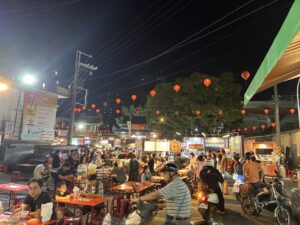
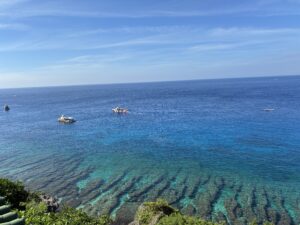
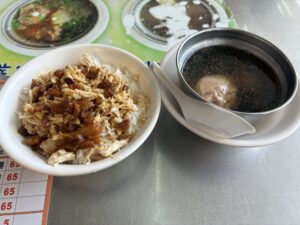
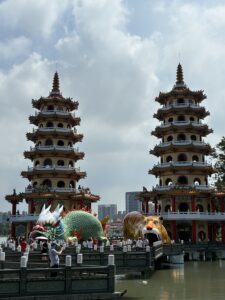
Report for Overseas Joint Research
2025.10.9
“Quantum Leader Human Resources (QLEAR)”Fellowship supports students who would like to have the overseas joint research for any quantum technology research organizations in abroad.
Please refer the report for the experiences of the overseas joint research 2025.
report for the experiences of the overseas joint research 2025
Name:Shu Ruifeng
Organization :The Chinese University of Hong Kong, Shenzhen
Country:China
Duration:2025.6.30-2025.9.2
・What made you decide to do joint research overseas?
I was deeply interested in the research focus of the host group, which is highly authoritative in the field of aggregation-induced emission. I believed that conducting research there would allow me to gain cutting-edge knowledge highly beneficial to my own work. In addition, the QLEAR fellowship strongly encouraged and supported international exchange opportunities, which motivated me to pursue this joint research.
・What preparations did you make before leaving for overseas joint research?
I contacted the academic affairs staff at The Chinese University of Hong Kong (Shenzhen) in advance to ensure a smooth and timely start to my research activities.
・How did you feel after participating in joint research overseas?
At first, I noticed that researchers from different countries and groups work at different paces and adopt distinct ways of thinking. This required a short adjustment period. Gradually, I came to value their perspectives, which broadened my intellectual horizons. Discussions with them gave me fresh insights into my research direction and future development.
・Did you find the research interesting or difficult during the overseas joint research?
IYes. I developed a strong interest in the new research direction. I aim to apply new theory to explore magnetism in organic molecular systems, which I believe is a promising field with broad scientific significance. This will become a major focus of my future research.
・How did you interact with professors and researchers?
I conduct experiments daily alongside their doctoral students and exchange insights on experimental techniques.
・How was the living environment during the overseas joint research? What about housing arrangements, prices, how to spend your vacation, etc.?
As a major city, Shenzhen offers a very good living environment, though the cost of living is relatively high. During holidays, I usually relaxed at home or went for walks by the sea or in the hills, much as I did in Japan. Overall, my lifestyle did not change much from when I lived in Osaka.
・What has changed since the end of the overseas joint research?
My way of thinking has matured. The experience helped me approach scientific problems more independently and critically. Though subtle, this change is an essential step toward becoming an independent researcher.
・How has the experience of overseas joint research been useful after returning to Japan?
It has been extremely valuable, providing me with a clear understanding of my future career planning and choices in life. Academically, it has given me a fresh perspective on submitting papers.
・How will you make use of your experience in overseas joint research in the future?
It has greatly broadened my horizons, which I consider the most valuable outcome of the joint research experience.
・Do you have any advice or message for those who are considering overseas joint research?
Just go for it.
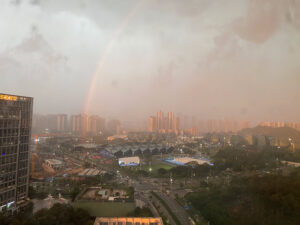
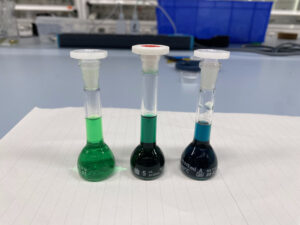
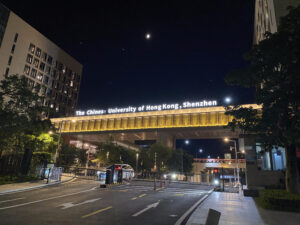
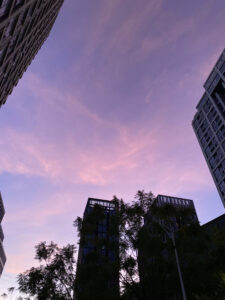
Report for Overseas Joint Research
2025.9.5
“Quantum Leader Human Resources (QLEAR)”Fellowship supports students who would like to have the overseas joint research for any quantum technology research organizations in abroad.
Please refer the report for the experiences of the overseas joint research 2025.
report for the experiences of the overseas joint research 2025
Name:CHEN YUXUAN
Organization :Tsinghua University
Country:中国
Duration:2025.6.1-2025.7.31
・What made you decide to do joint research overseas?
They are a large research group with over ten doctoral students, simultaneously pursuing numerous fascinating projects. I wanted to observe how they conduct their research.
At the same time, I also wanted to experience how ion trap research groups outside Japan operate.
・What preparations did you make before leaving for overseas joint research?
I read the relevant papers from their lab. I added the contact information of their lab members and stayed in touch.
・How did you feel after participating in joint research overseas?
I feel I’ve learned an immense amount, both academically and in terms of problem-solving approaches. During my research at Osaka University, I spent almost all my time working alone on everything. This often led me down dead ends and into self-doubt, only to realize later that the issue might have been minor. In their research group, I frequently discussed matters with others—whether experimental details, theoretical models, or simulations. This allowed for rapid problem-solving and saved a great deal of time.
・Did you find the research interesting or difficult during the overseas joint research?
I found both intriguing and challenging—two months is simply too short for in-depth research in physics. Their project timeline was extremely tight, so after discussion, we decided to pursue a small technical task: removing black ions from ionic crystals. I conducted preliminary research and eventually tested the approach in the experimental setup. The final results weren’t perfect, and the process was challenging moments, but the attempt itself was fascinating.
・How did you interact with professors and researchers?
I conduct experiments daily alongside their doctoral students and exchange insights on experimental techniques.
・How was the living environment during the overseas joint research? What about housing arrangements, prices, how to spend your vacation, etc.?
The living environment is excellent and very convenient. Beijing is a big city where dining is very affordable, but accommodation is extremely expensive! My budget is almost entirely consumed by housing costs.
・What has changed since the end of the overseas joint research?
It has given me a clearer understanding of my future career plans.
・How has the experience of overseas joint research been useful after returning to Japan?
It has been extremely valuable, providing me with a clear understanding of my future career planning and choices in life. Academically, it has given me a fresh perspective on submitting papers.
・How will you make use of your experience in overseas joint research in the future?
A truly remarkable experience—perfect for my resume!
・Do you have any advice or message for those who are considering overseas joint research?
Just do it—
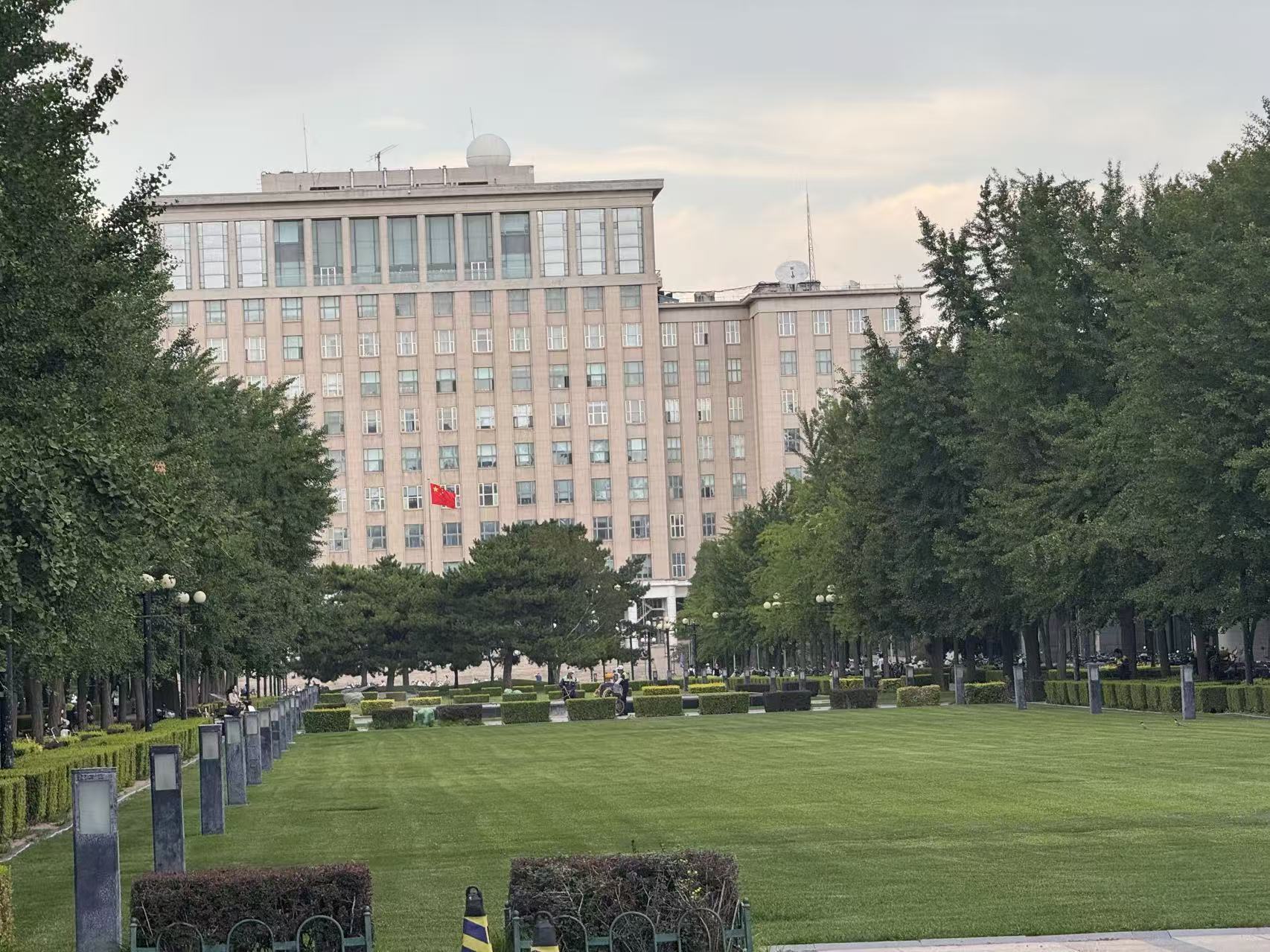
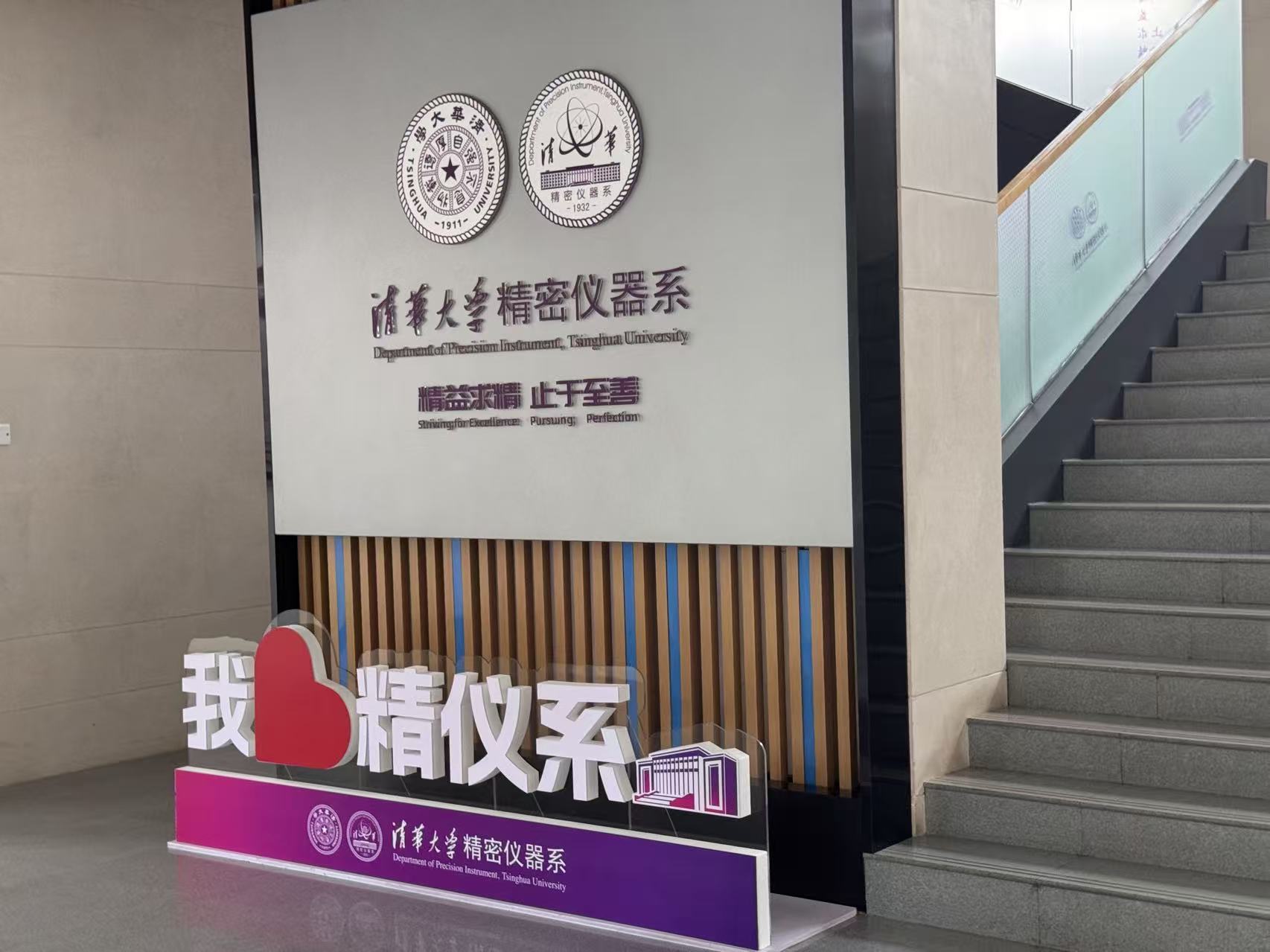
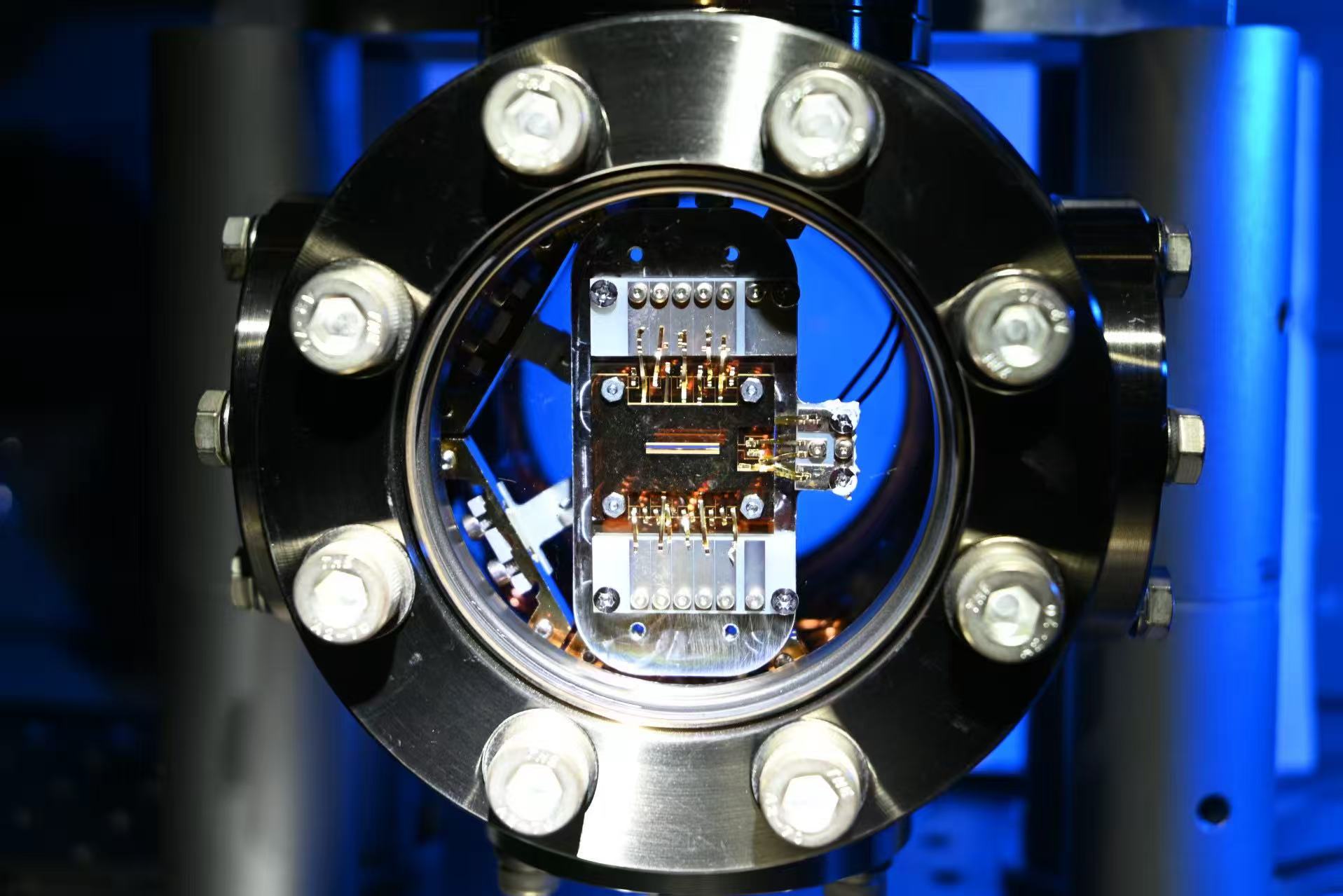
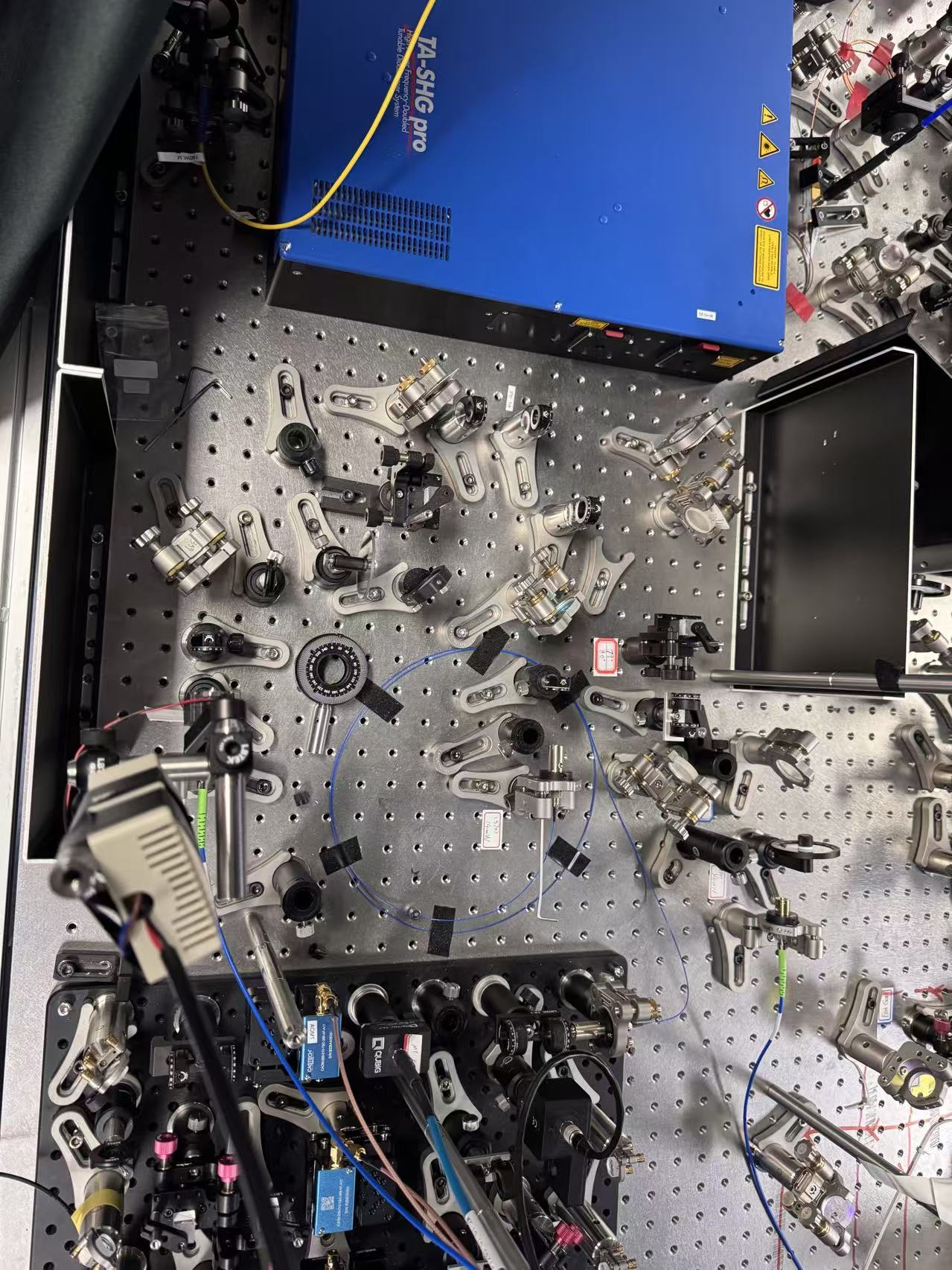

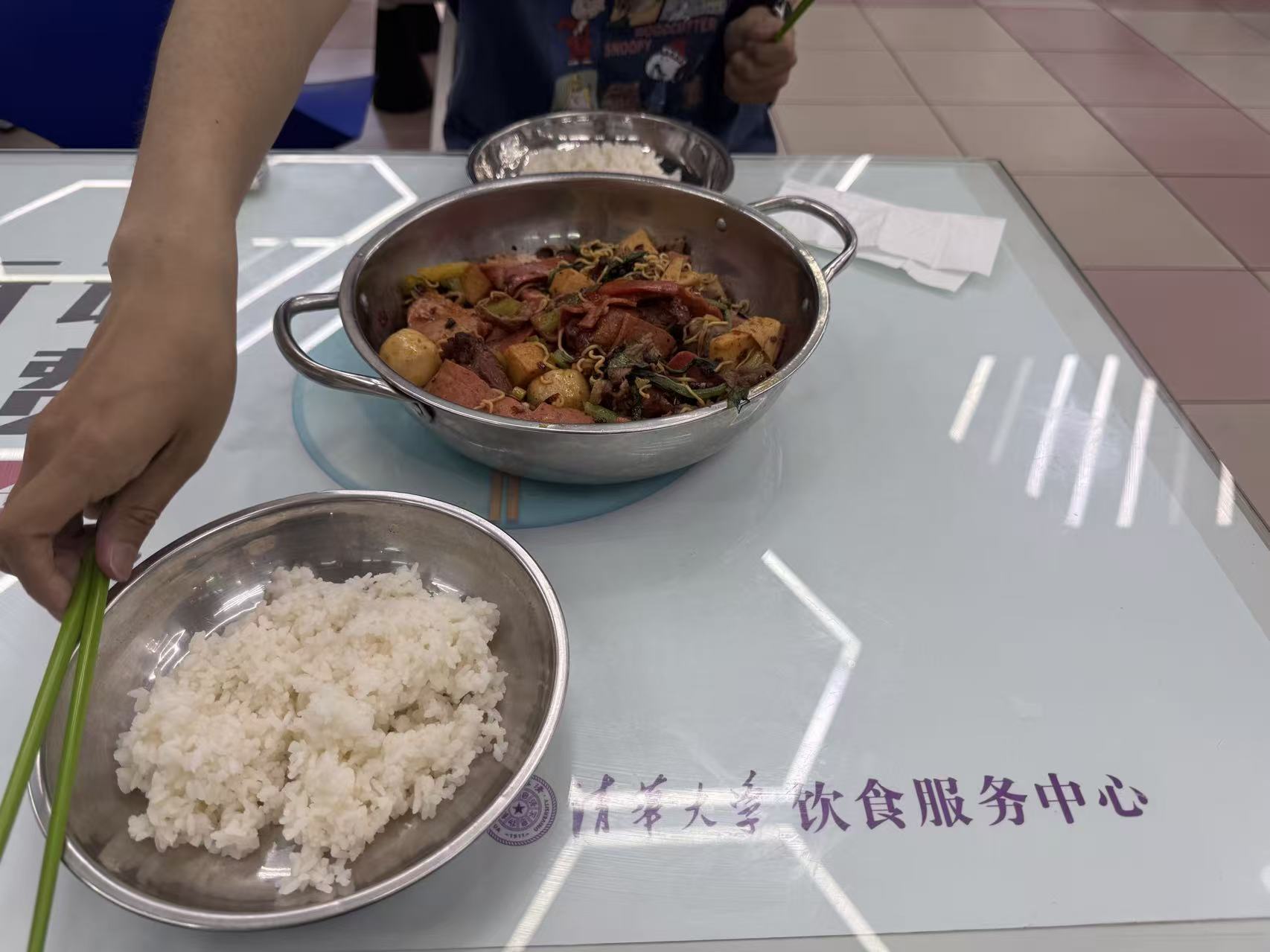
Report for Overseas Joint Research
2025.8.12
“Quantum Leader Human Resources (QLEAR)”Fellowship supports students who would like to have the overseas joint research for any quantum technology research organizations in abroad.
Please refer the report for the experiences of the overseas joint research 2025.
report for the experiences of the overseas joint research 2025
Name :Masahiro Nakayama
Organization :AGH科学技術大学
Country :Poland
Duration:2025/6/7 to 2025/7/12
・What made you decide to do overseas joint reserach?
我々の研究室では、分子ネットワークを用いて神経型の情報機能を持つシステムの構築に関する研究を行っています。私はその中で、プローブ顕微鏡を駆使し、分子ネットワーク内部における電子伝導メカニズムの解明とその可視化に取り組んできました。これまでに、導電性高分子を用いた音声認識に世界で初めて成功しましたが、デバイス動作中の内部メカニズムについては依然として不明な点が多く残されています。電子伝導メカニズムの理解をさらに深めるためには、プローブ顕微鏡だけでなく、電気化学測定や分光特性評価など、多角的な測定手法を組み合わせる必要があると考えています。特に、デバイスとプローブ顕微鏡、分光測定を統合的に用いることで、これまで観測できなかった物理現象を捉え、それらがデバイスの機能性に密接に関わっていることを明らかにできる可能性があります。
今回の受け入れ研究者である先生は、メモリーデバイス用途の有機および無機材料の合成と特性評価を専門としています。分野をまたいだ交流は、私の研究に新たな視点をもたらし、今後の展開に大きく寄与すると確信しています。こうした背景から、海外共同研究に取り組むことを決意しました。
・What preparations did you make before leaving to overseas joint research?
Konrad先生とのメールのやり取りで、どのような研究を行うかについて事前に相談し、決定後、その研究について関連する論文を読み予習をしました。
向こうでの生活するための準備については、基本的に調理器具具体的には調理ばさみや十徳ナイフを持っていくようにしました。またビザに関してはポーランドでのか月の滞在では基本的に要らなかったので、それほど生活における準備はそこまでしなかったです。
・How did you feel after participating in joint research overseas?
海外研究をして一番に感じたことは、研究におけるメリハリが非常にはっきりしているという点です。研究時間中は集中して実験や議論を行い、終了後はしっかりと休息や私生活の時間を確保する姿勢が徹底されていました。そのため、限られた時間内で最大限の成果を上げるための効率的な実験計画や議論の進め方が自然と身についていると感じました。加えて、研究者同士が分野や立場を越えて意見交換を行う環境が整っており、自分の研究に対しても多角的な視点からのフィードバックを得られたことは大きな刺激となりました。こうした経験を通じて、効率と創造性の両立が研究の質を高めることを実感しました。
・Did you find the research interesting or difficult during the overseas joint research?
これまで取り組んできた分野とは異なるアプローチで研究を行い、新たな装置によってこれまで観測できなかった種類のデータを得られたときには大きな面白さを感じました。特に、初めて電気化学測定装置や温度可変できる傾向分析装置を用いてサンプルから特異な信号が得られた瞬間は、未知の物理現象に一歩近づけたような高揚感がありました。
一方で、苦労した点も多くありました。例えば、サンプル作製ではうまく物質が溶媒に解けなかったため、そのまま分子膜を作製しても均一膜ができないことが多々ありました。また、測定装置の液体ヘリウムによる冷却の不具合により、思うようにデータ取得が進まない状況も経験しました。
こうした困難の中でも、現地の研究者と原因を議論し、作製条件を何度も見直したり、代替測定法を試したりすることで、限られた時間の中で可能な最大限の成果を得る方法を学びました。この経験は、今後予期せぬトラブルに直面した際の柔軟な対応力につながると感じています。
・How did you interact with professors and researchers?
訪問初週には、Konrad先生をはじめポスドクの方々が市街地を案内してくださり、ポーランド料理店にも連れて行っていただくなど、心温まるおもてなしを受けました。助教の方も当初はほぼ付きっきりで、測定方法や装置の操作を丁寧に指導してくださいました。
また、測定の合間には日常的な雑談を交わす機会も多くありました。訪問先の研究室は学生がほとんどおらず、当初はポスドクや先生方ばかりの環境に少し緊張していましたが、皆さん非常に気さくで、研究や日常の話題を気軽に話せる雰囲気でした。こうした温かい人間関係が、研究活動にも大きな安心感を与えてくれました。
・How was the living environment during the overseas joint research? What about housing arrangements,
prices,how to spend your vacation,etc.?
私が訪れた月から月にかけてのポーランドは、雨が少なく気温も前後と非常に過ごしやすい気候でした。住居費は比較的安く、学生寮であれば月あたり約円とかなり経済的です。私の場合は、時期的に学生寮が満室でゲストルームを利用することになり、月あたり万円ほどかかりましたが、全体的には住居費は日本より安い印象を受けました。
物価については、日本と大きく変わらず、生活面で特に負担を感じることはありませんでした。食事は主に格安スーパーを利用し、サラダやパン(安いものでは一つ円程度)を中心に自炊寄りの生活を送っていました。海外では外食よりもスーパーを活用するほうが圧倒的に安く済むため、現地で安価なスーパーを探すことが生活コストを抑える有効な方法だと感じました。
休日は市街地を散策して歴史的建造物や公園を訪れたりのんびりと過ごすことが多かったです。また、週末にはワルシャワへ友人と日帰り旅行をして、地元の市場や名所を巡るなど、ポーランドの文化や風景に直接触れる時間を持つことができました。
・what has changed since the end of the overseas joint research?
海外研修に行く前にも不安を感じていたのが英語でのコミュニケーションでした。最初は会話がうまくいかず、戸惑うこともありましたが、毎日少しずつ慣れていくうちに徐々に理解できるようになり、自然と話せるようになっていきました。研修の終盤には英語での会話に対する抵抗感はほとんどなくなり、自身をもってやり取りできるようになりました。
・How has the experience of overseas joint research been useful after returning to Japar?
これまでに扱ったことのない装置を用いて研究を行ったことで、新たな測定手法や解析の知識を習得でき、自身の研究においても多角的なアプローチが可能になったと感じています。特に、装置の操作方法だけでなく、データ取得の条件設定や結果の解釈に関する考え方など、現地で学んだノウハウは現在の実験計画にも直接生かされています。また、異分野の研究者と議論を重ねた経験は、自分の研究を客観的に見直し、新たな仮説や実験方法を取り入れるきっかけにもなりました。こうした経験は、今後の共同研究や国際的な研究活動を進める上で大きな財産となっています。
・How will you make use of your experience in overseas joint research in the future?
専門知識の習得に加え、海外と日本における研究文化や働き方の違いを直接体感したことで、将来海外で仕事をするキャリアプランをより具体的に描けるようになりました。特に、限られた時間内で成果を最大化する研究の進め方や、分野や立場を超えた積極的な議論の文化は、今後どの環境でも通用する貴重な経験となりました。これらの学びを生かし、国際共同研究を積極的に進めるだけでなく、将来的には自らが海外と日本をつなぐ橋渡し役として、研究と人材交流の場を広げていきたいと考えています。
・Do you have any advice or message for those who are considering overseas joint research?
ぜひとも海外研修に行くことをお勧めします。私も行くまでは海外での生活や慣れない海外での研究や英語ができるかといった様々な不安を抱えていました。しかし、その不安は研究を行っている内にいつの間にか気にしていないことを感じました。皆さん最初は非常に不安に思うことも多々あると思います。しかし、チャレンジしてみないとわからないことが世の中ではほとんどなので、ぜひ躊躇せずチャレンジしてみてください。必ずこの経験は自身のキャリアや人生の糧となるはずです。




AY2024 QLEAR Fellowship Researcher exchange workshop
2025.3.5
On February 27th(Thursday)and 28th (Friday), 2025, at the Nambu Yoichiro Hall of The University of Osaka Toyonaka Campus, AY2024 Researcher exchange workshop by the face-to face format was held.
The contents of the program are 2 invited lectures and presentations of fellowship students (39 oral presentations and 18 poster presentations). In addition to welcoming invited speakers from outside,a total of 90 people attended the two-day event.
This time,a reception was also held after the end of the event on February 27th.
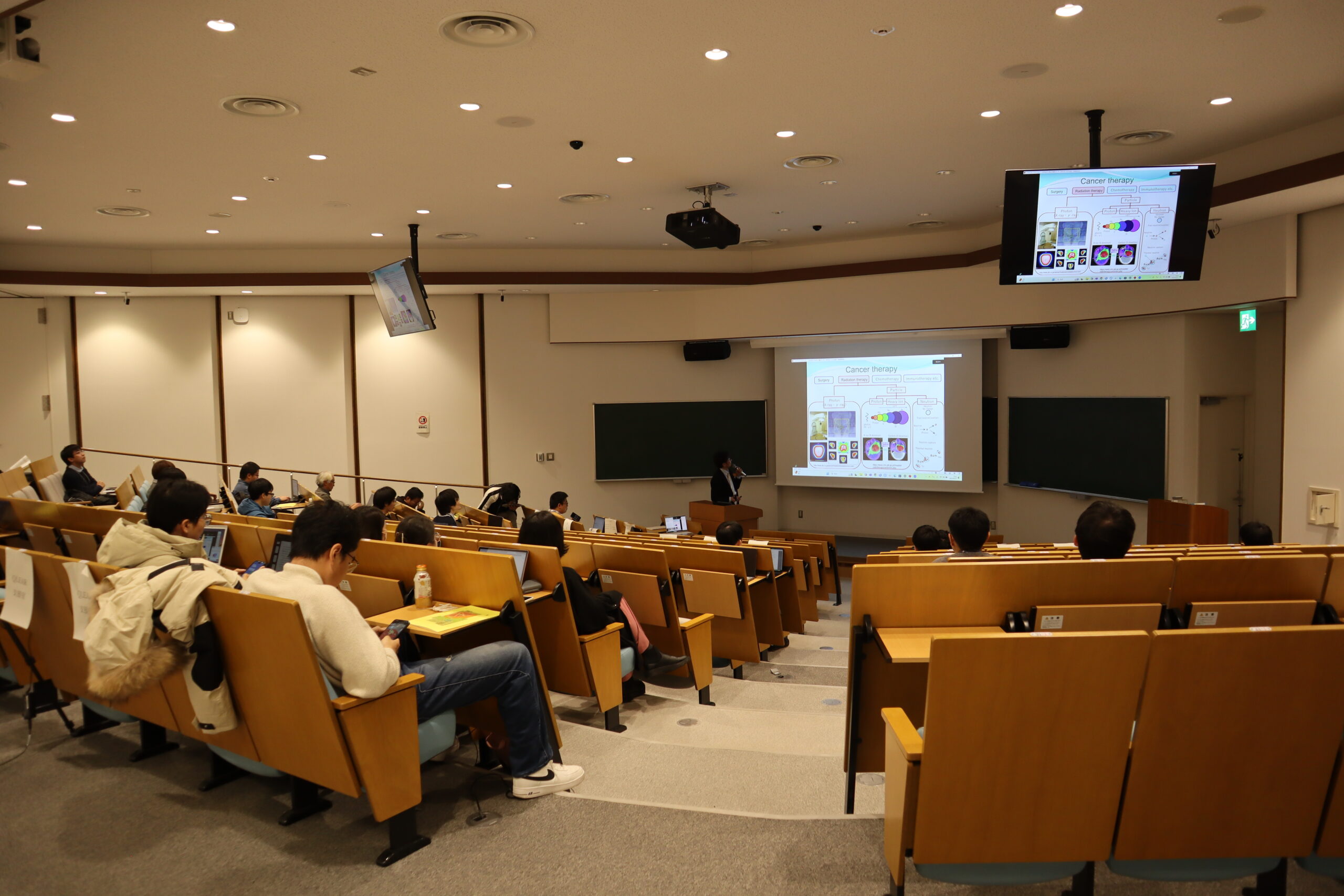
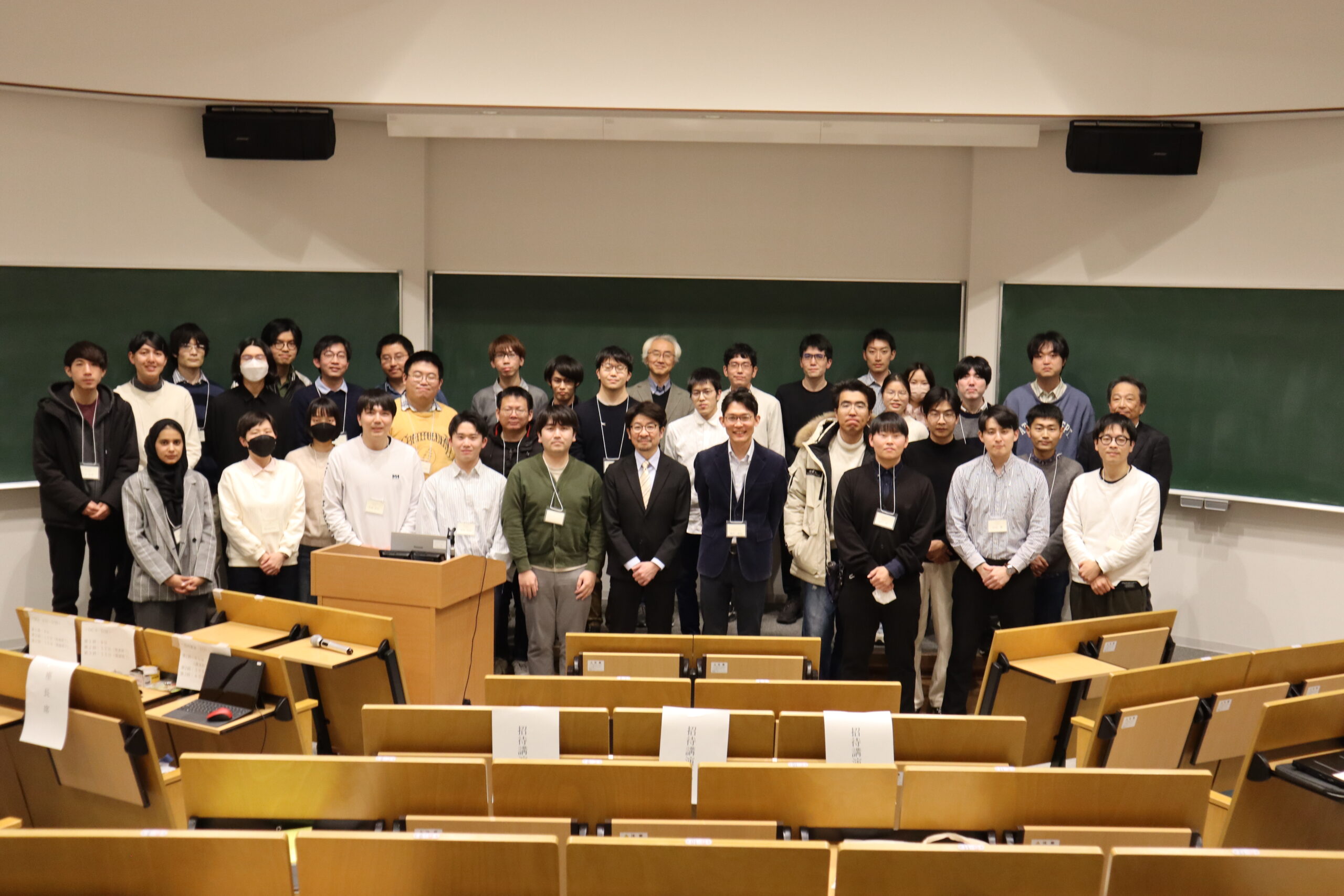
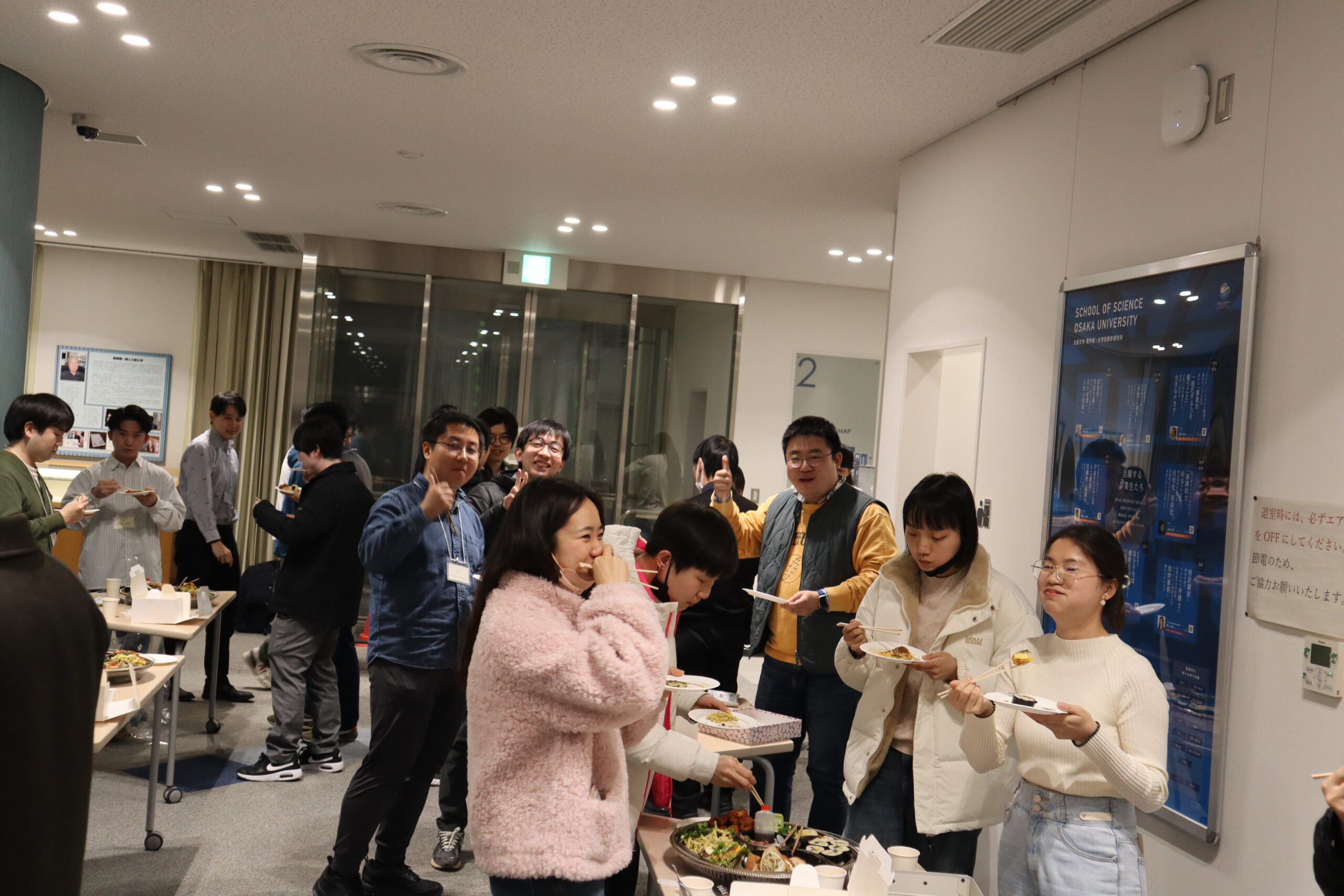
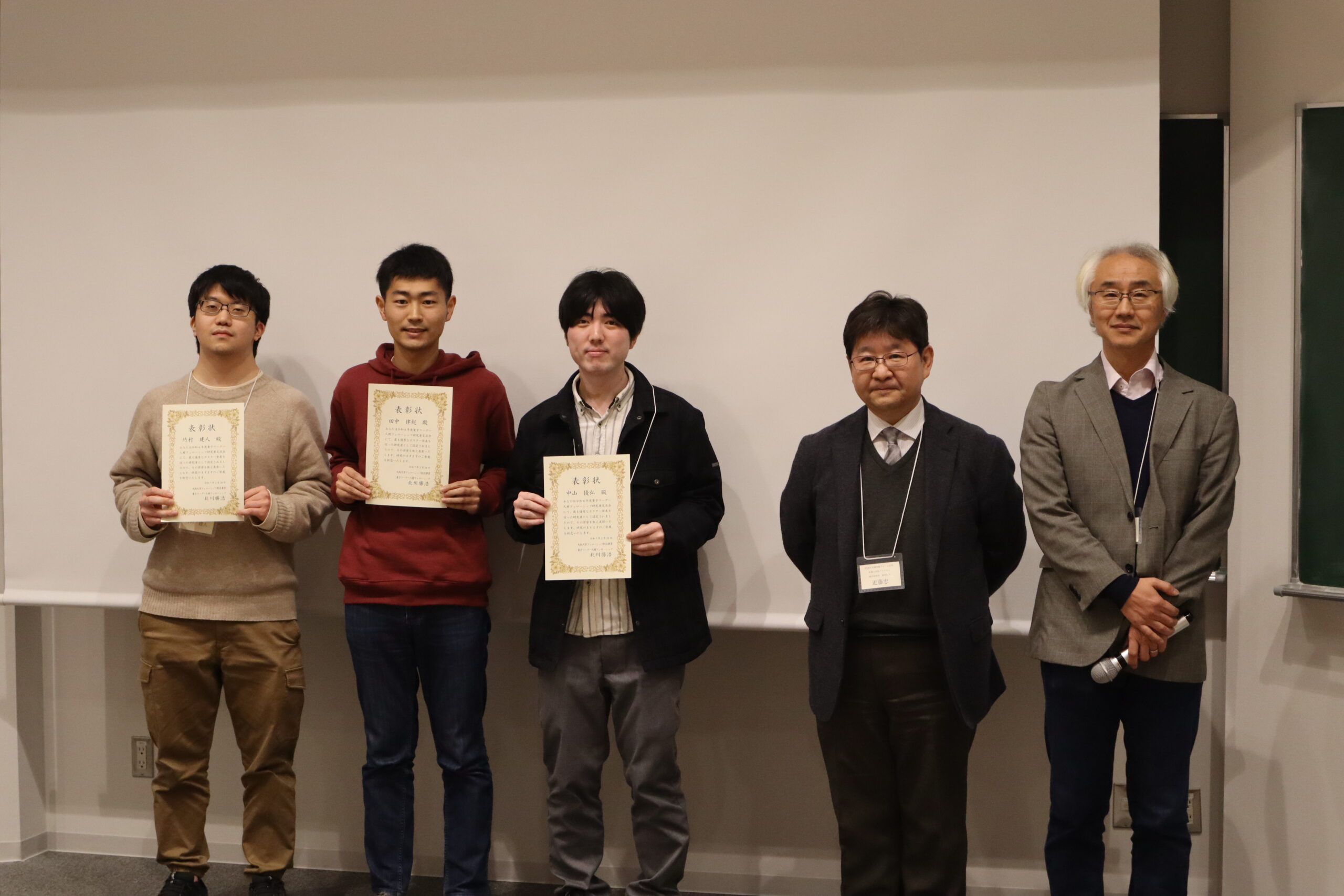
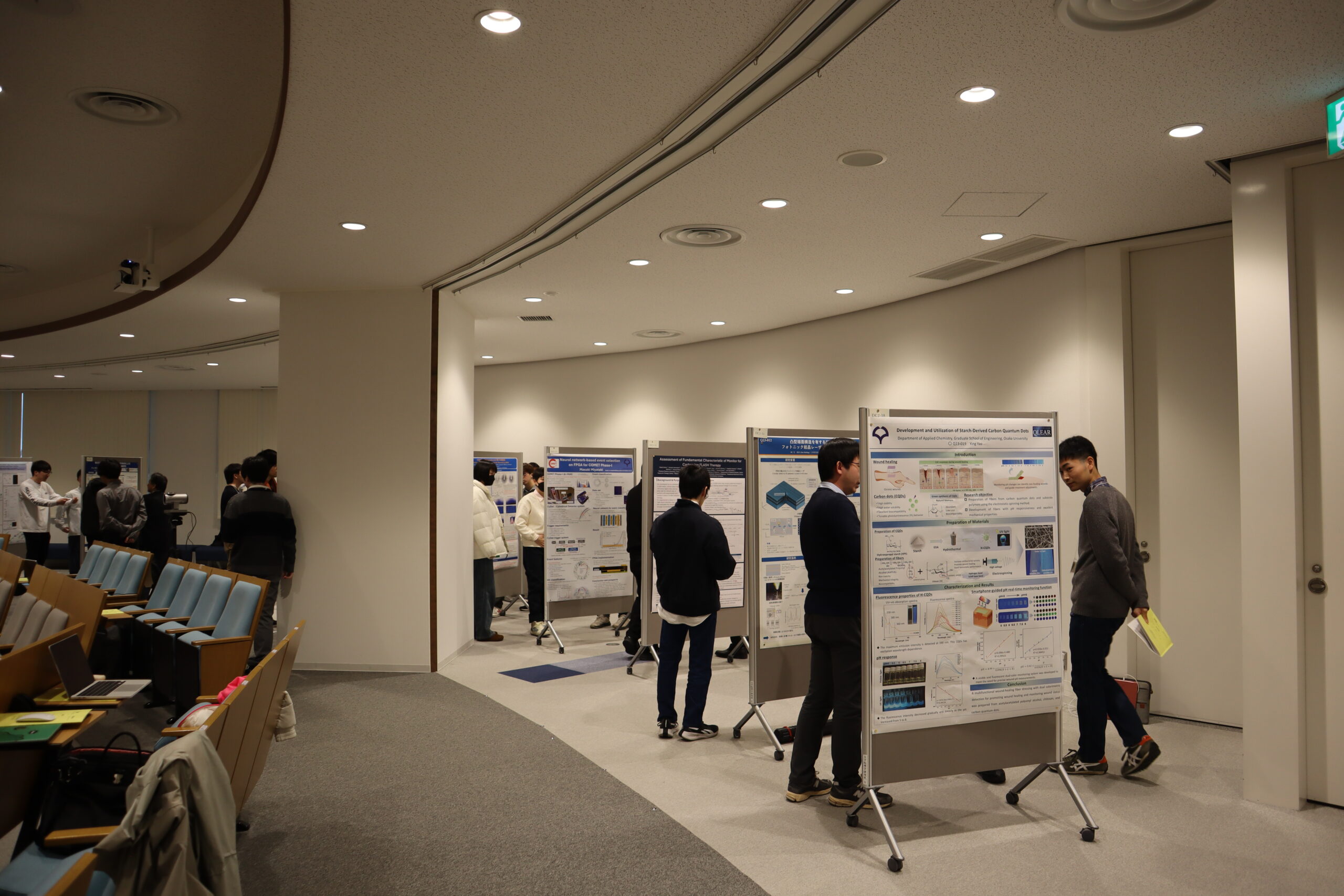
Report for Overseas Joint Research
2025.1.28
“Quantum Leader Human Resources (QLEAR)”Fellowship supports students who would like to have the overseas joint research for any quantum technology research organizations in abroad.
Please refer the report for the experiences of the overseas joint research 2024 and apply for the overseas joint research 2025.
report for the experiences of the overseas joint research 2024
Name :Yao Ying
Organization :RWTH AACHEN UNIVERSITY
Country :Germany
Duration:2024.10.28-2024.12.28
・What made you decide to do overseas joint reserach?
Because my professor has a collaborative research project with a professor at RWTH Aachen University in Germany,
focusing on biohybrids and medical textiles as well as innovative research from biomass to biomaterials,
I decided to apply for this opportunity. I have always been interested in the development of biomedical materials,
and when I learned about the chance to participate in an overseas joint research program, I immediately submitted my application.
・What preparations did you make before leaving to overseas joint research?
I think this is a complex process that roughly consists of three parts.
First, I needed to discuss the specific experimental direction with the professors at RWTH Aachen University,
develop an experimental plan, and determine the visit schedule.
The second step was renting accommodation. Due to time constraints, I was unable to apply for a dormitory.
However, I was fortunate to find a place from the housing list provided by the university,
which is only a 30-minute commute from the campus.
The third step was the visa application. The most important part of the visa application was obtaining a recommendation letter
from the German professor, which needed to include specific information required for the visa. This step took the longest time.
Once the required materials were prepared, the visa application process went smoothly, and I successfully obtained the visa.
・How did you feel after participating in joint research overseas?
This was a very valuable experience, bringing positive impacts to both my research and my life.
It provided me with a unique laboratory and cultural experience.
Moreover, I made new friends and met new professors, which was also a delightful aspect.
・Did you find the research interesting or difficult during the overseas joint research?
An interesting aspect was the differences in work habits and laboratory rules between the two labs,
which required me to set aside my previous experiences and start learning from scratch.
My lab mates came from various countries, mostly from Europe, so interacting with them was a very enjoyable experience.
On the other hand, a challenging aspect was that many of the biological tests and instruments were new to me,
so I faced difficulties in both understanding and operating them within a short time frame.
・How did you interact with professors and researchers?
Before my arrival, my professor, the German professor, and I held an online meeting to discuss the research topic.
After I arrived, the German professor assigned me a Ph.D. candidate as a mentor to assist me with my work in the laboratory.
During the mid-term review meeting, I presented my progress, and they provided unique insights and valuable suggestions for my research.
・How was the living environment during the overseas joint research? What about housing arrangements,
prices,how to spend your vacation,etc.?
I live in a small town not far from the university, where life is very convenient, with a station and a supermarket right across the street.
The accommodation is excellent—a single room with a private bathroom and kitchen, fully furnished with most of the essentials.
However, the price is relatively high. Fortunately, during this exchange period, the Christmas markets were open, so I had the chance
to experience the festive atmosphere by visiting the Christmas markets in two cities.
・what has changed since the end of the overseas joint research?
I believe my English has improved to some extent, and I have also learned to approach problems from an interdisciplinary perspective,
which has given me a new and broader outlook.
・How has the experience of overseas joint research been useful after returning to Japar?
I think it’s my work efficiency. I used to find it difficult to make plans, but now I start by creating a plan and then follow it through.
This has been very helpful in balancing my lab work and rest time.
・How will you make use of your experience in overseas joint research in the future?
I believe there are aspects from this experience that I can apply to both my research and personal life.
In research, I can broaden my perspective and integrate the interdisciplinary knowledge gained during this exchange
to better envision the applications of materials. On the other hand, I’ve come to realize that everyone has their own understanding of life,
and choosing a lifestyle you truly enjoy is what really matters.
・Do you have any advice or message for those who are considering overseas joint research?
If you are considering applying for an overseas joint research program, I believe the answer is definitely yes.
Each country has its own way of working, and experiencing these differences can be incredibly interesting.
It can also benefit your future career choices and personal life.
Additionally, having the opportunity to communicate with people from around the world is a very meaningful experience.





Report for Overseas Joint Research
2025.1.10
“Quantum Leader Human Resources (QLEAR)”Fellowship supports students who would like to have the overseas joint research for any quantum technology research organizations in abroad.
Please refer the report for the experiences of the overseas joint research 2024 and apply for the overseas joint research 2025.
report for the experiences of the overseas joint research 2024
Name :Tianchen Zhang
Organization :Inha University
Country :Korea
Duration:2024/11/14 to 2024/12/04
・What made you decide to do overseas joint reserach?
I decided to conduct research at Inha University primarily because of Prof. Kim’s expertise in
effective models for hadron physics. While my background in Lattice QCD provided a strong
foundation, I recognized the need to understand different theoretical approaches to develop
a more comprehensive view of non-perturbative QCD.
・What preparations did you make before leaving to overseas joint research?
My preparations focused mainly on research aspects, including reviewing relevant papers and
preparing my presentation on gauge dependence of ccbar potential. I also arranged my own
accommodation by booking a hotel in advance to ensure a smooth stay during the 20-day research period.
・How did you feel after participating in joint research overseas?
The experience gave me a fresh perspective on scientific research. Engaging with researchers
who approach similar problems from different theoretical frameworks broadened my horizons
and enhanced my understanding of hadron physics. The experience was both intellectually
stimulating and professionally enriching.
・Did you find the research interesting or difficult during the overseas joint research?
The research was both challenging and fascinating. While learning various effective models
required significant effort, seeing how different theoretical approaches complement each
other was incredibly rewarding. The discussions about integrating Lattice QCD with effective
models opened new perspectives in my research.
・How did you interact with professors and researchers?
I interacted with Prof. Kim and other researchers through regular seminars and informal discussions.
These interactions provided valuable opportunities to discuss physics in depth and understand
different theoretical approaches. The combination of formal seminars and casual discussions
created an ideal environment for academic exchange.
・How was the living environment during the overseas joint research? What about housing arrangements,
prices,how to spend your vacation,etc.?
I stayed in a hotel during my visit, which provided a comfortable environment for focusing on research.
During free time, I had opportunities to experience Korean culture, which added an enriching cultural
dimension to my academic visit.
・what has changed since the end of the overseas joint research?
The experience has significantly influenced my approach to research. I now have a broader
perspective on theoretical physics and a deeper appreciation for different methodological
approaches. It has changed how I think about scientific problems and the importance of
interdisciplinary approaches.
・How has the experience of overseas joint research been useful after returning to Japar?
This experience has given me new insights into research methodology and theoretical approaches.
The knowledge gained about effective models complements my Lattice QCD work, enabling me to
approach problems from multiple perspectives.
・How will you make use of your experience in overseas joint research in the future?
I plan to integrate the insights gained about effective models with my Lattice QCD research,
potentially developing new approaches that combine the strengths of both methods. The
international connections established during this visit also provide opportunities for future collaborations.
・Do you have any advice or message for those who are considering overseas joint research?
The language barrier in Korea was manageable despite limited local English proficiency.
Credit cards are widely accepted for daily expenses, though a transit card is needed for buses.
The most valuable aspect was gaining new perspectives on research and deeper understanding
of academic culture through interactions with the host group.
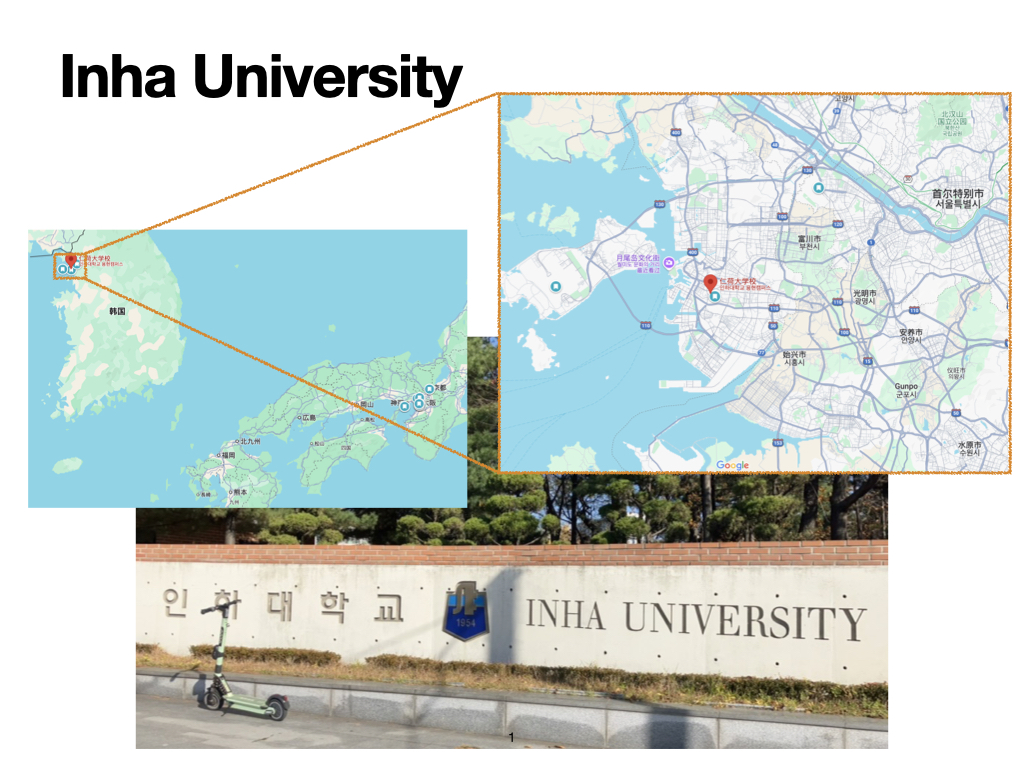
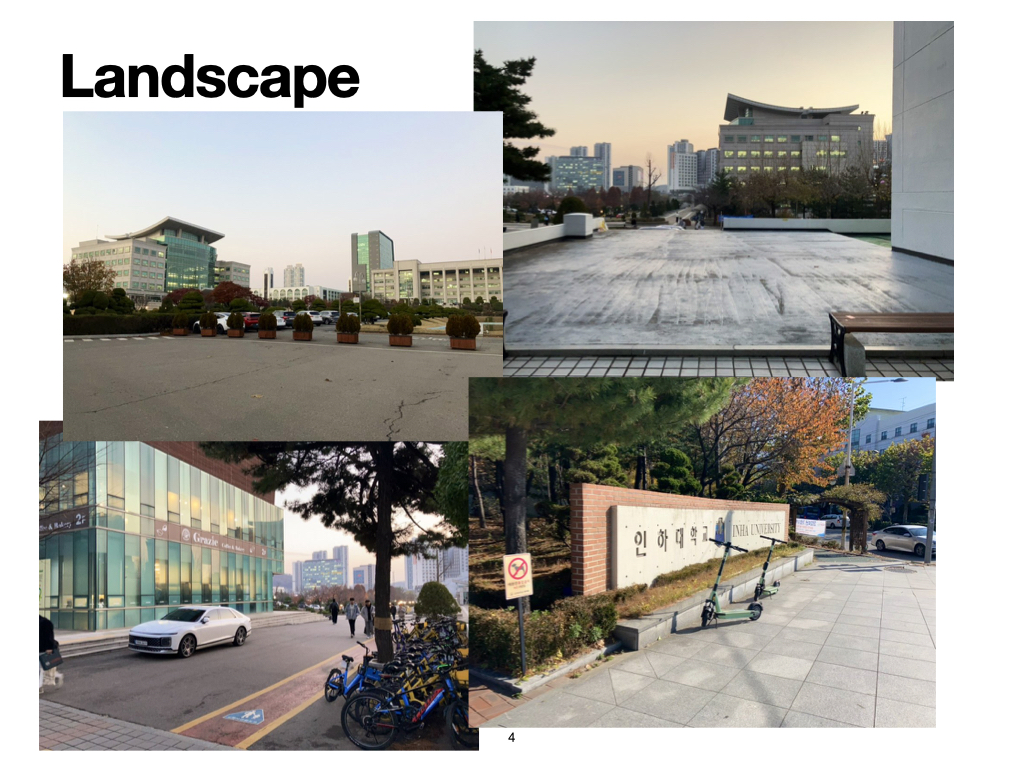
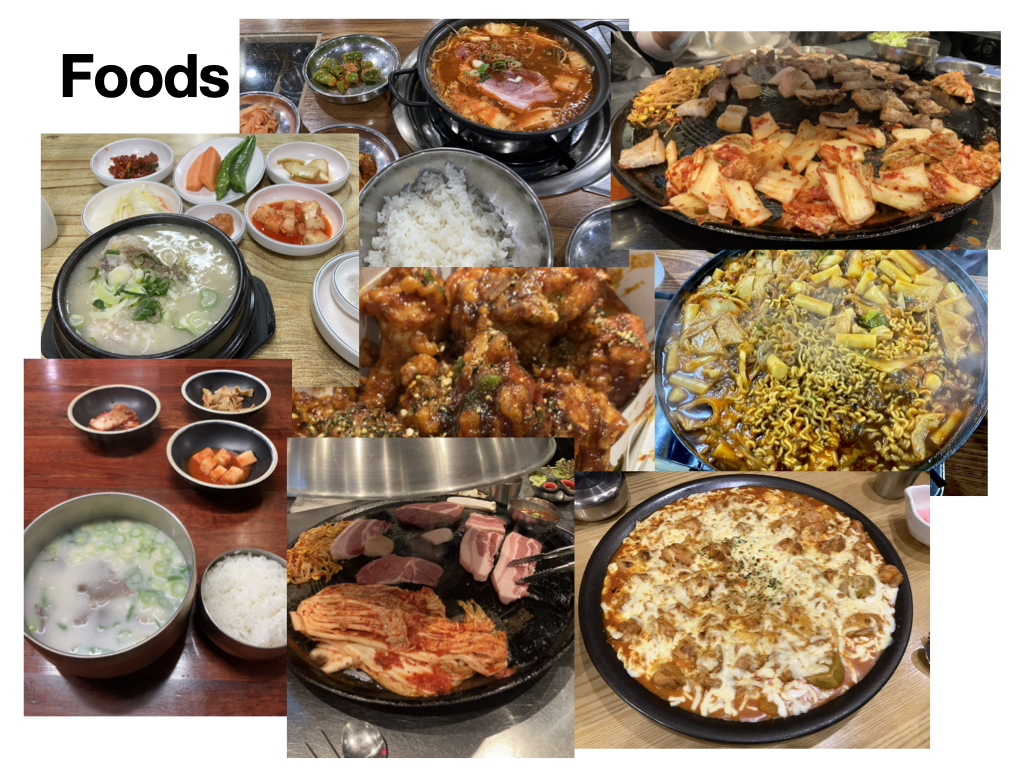
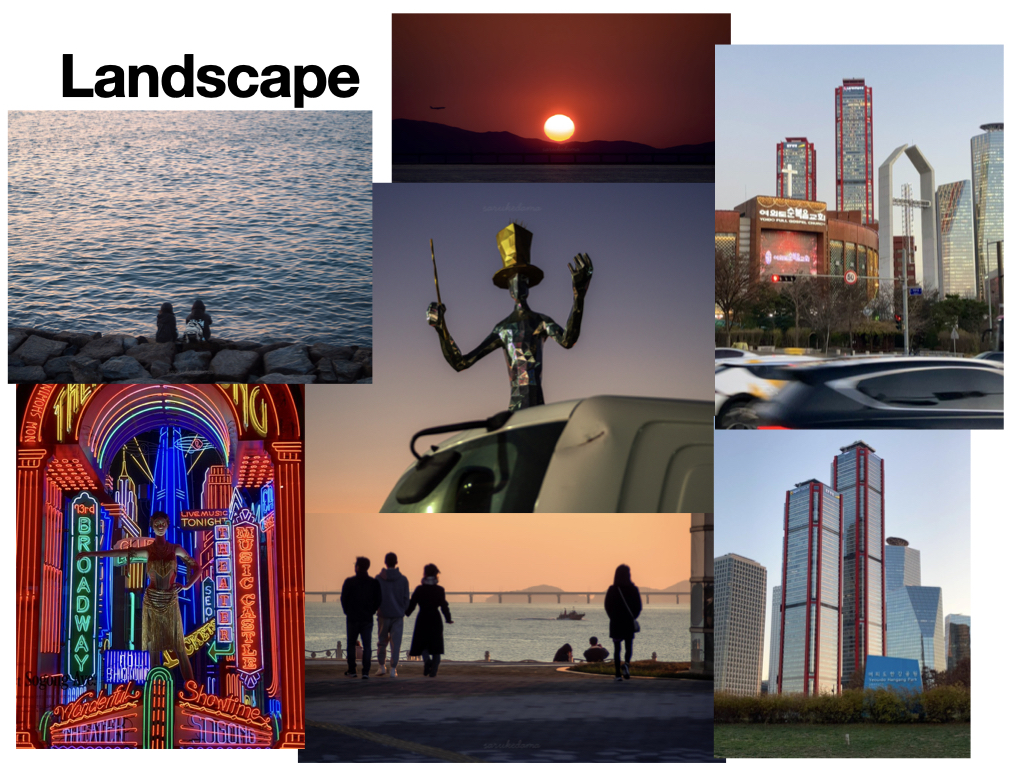
We held the 2024 Laboratory Tour.
2024.11.15
With the aim of promoting interaction between fellowshp recipients,we hold an event every year where recipients can visit the laboratories they belong to.
This year,laboratory tours were held at the Suita Campus, Toyonaka Campus,and online from November 11th(Mon) to November 15th(Fri),2024.
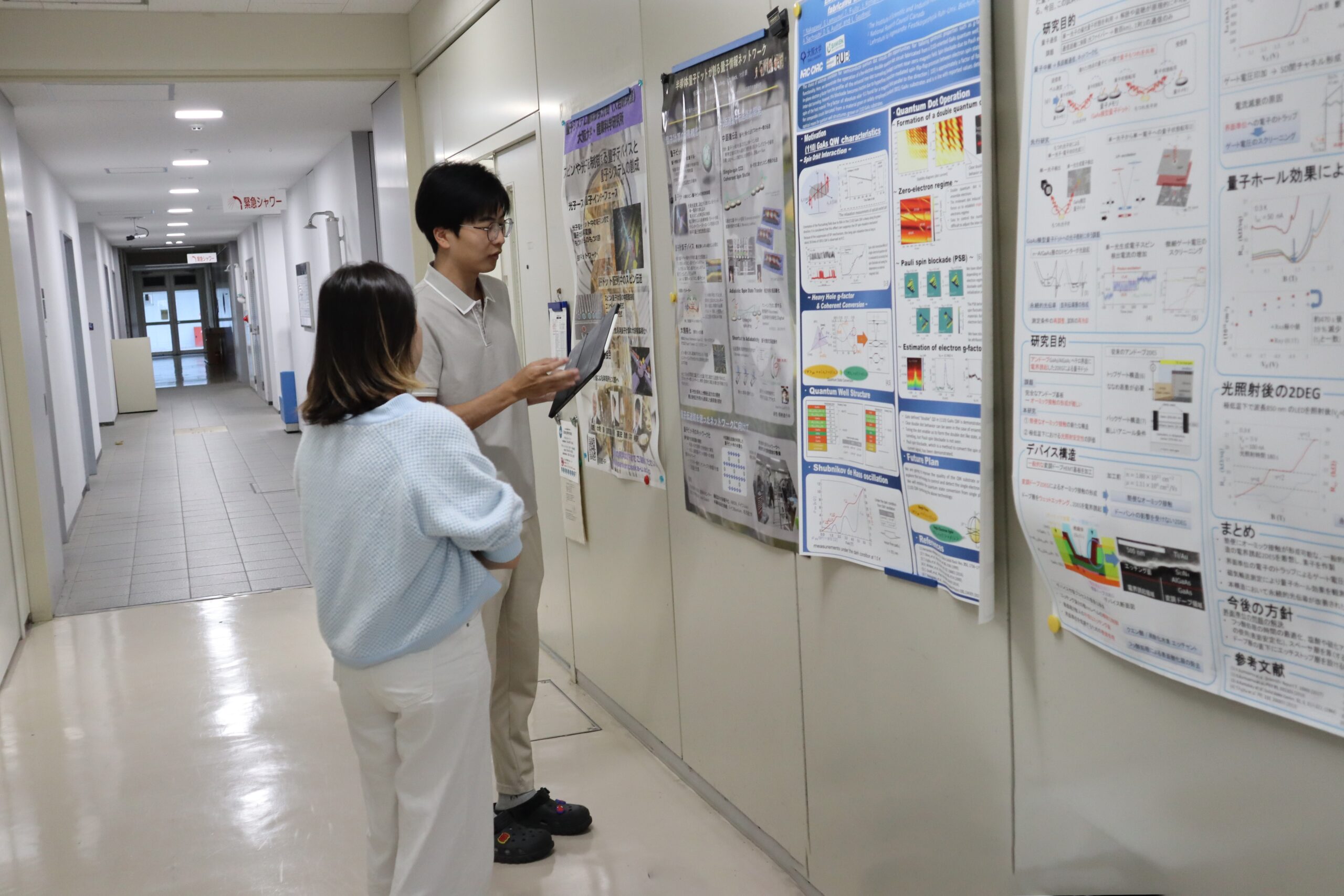
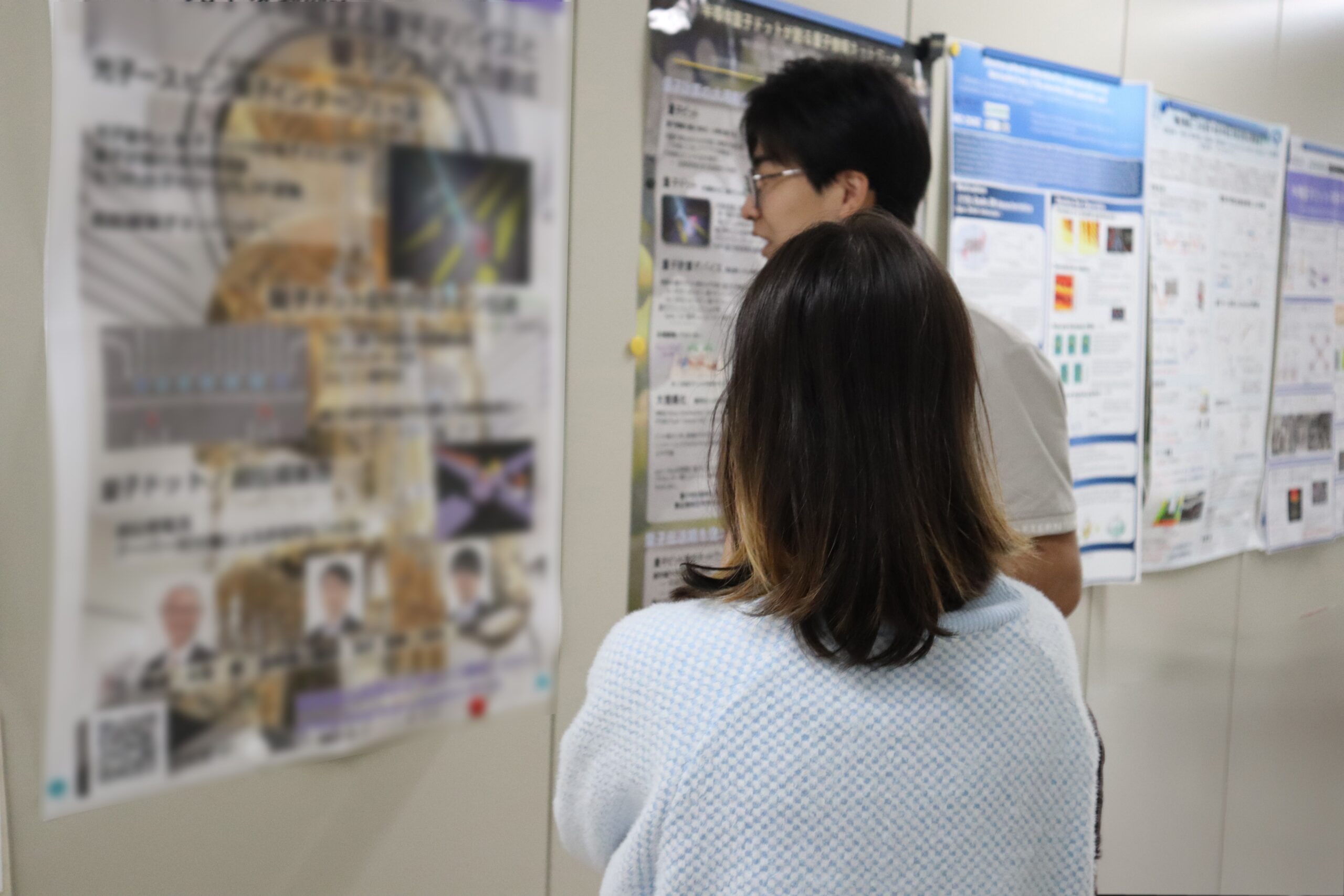
2024.4.23
AY2023 QLEAR Fellowship Researcher exchange workshop
2024.3.15
On March 6th(Wednesday) ,7th(Thursday)and 8th (Friday), 2024, at the Nambu Yoichiro Hall of The University of Osaka Toyonaka Campus, AY2023 Researcher exchange workshop by the face-to face format was held. The contents of the program are 2 invited lectures and presentations of fellowship students (23 oral presentations and 42poster presentations). In addition to welcoming invited speakers from outside,
a total of 122 people attended the three-day event.
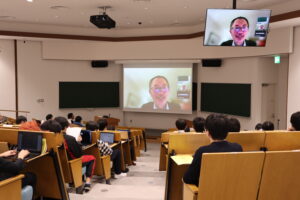

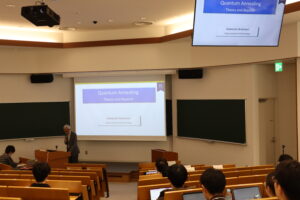
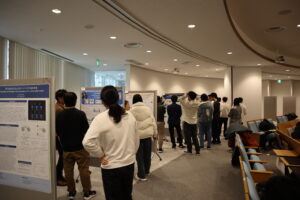
Report for Overseas Joint Research
2024.2.21
“Quantum Leader Human Resources (QLEAR)”Fellowship supports students who would like to have the overseas joint research for any quantum technology research organizations in abroad.
Please refer the report for the experiences of the overseas joint research 2023 and apply for the overseas joint research 2024.
report for the experiences of the overseas joint research 2023
Name :Rendong Hu
Organization :Zernike Institute for Advanced Materials
Country :Netherlands
Duration:November 1, 2023 ~ January 22, 2024
・What made you decide to do overseas joint reserach?
My current research is a cooperative project. To proceed with my project, I decided to
join the research overseas. And it is also a nice opportunity to keep good relationships with
another good group.
・What preparations did you make before leaving for overseas joint research?
First of all, I set a goal for overseas joint research. And I made a rough plan based on my
goal. Another important preparation is to manage the schedule at Osaka University. Before
departure, I tried my best to finish my work in Osaka.
In addition, I also needed to arrange the live there, such as living place, in advance.
・How did you feel after participating in joint research overseas?
It is a good experience. Although there were some problems with the process of my
project, somehow I reached my set goal. And it was very nice to meet the professor and my
friends there again and meet new people.
・Did you find the research interesting or difficult during the overseas joint research?
As I mentioned above, my project is cooperative. Groningen is supposed to prepare the
devices and Osaka will finish the measurements under ultra-low temperature. It was
interesting to prepare the devices by myself again and experience the difference between the
two groups, for example, working habits and experimental methods.
Of course, there were some difficulties. The experimental equipment in Groningen is not
as sufficient as in Osaka. The biggest difficulty is to arrange the time with the group members
there. Also, living there is harder than in Japan. Most of the time we need to cook by ourselves.
・How did you interact with professors and researchers?
We keep discussing my project during the PhD program. So it is relatively easier to interact
with professors and researchers. We have meetings every three weeks, which include two
professors and related researchers from both sides (Osaka and Groningen).
・How was the living environment during the overseas joint research? What about housing
arrangements, prices, how to spend your vacation, etc.?
The living in Groningen is always hard. The price of a good apartment or studio is
extremely high compared with Osaka. It could be 150,000 yen per month, or even higher.
Most of the official renting companies do not provide short-term periodic properties. I lived
in my friend’s house for several days. Finally, with their help, I found a short-term property
from other people.
There was the Christmas holiday during my overseas time. I went to Norway with my
friend during the holiday to pursue the aurora.
・What has changed since the end of the overseas joint research?
It became more clear about my PhD program. After discussing with two professors, I
know the requirements for my program. And also my current project procced a big step.
・How has the experience of overseas joint research been useful after returning to Japan?
It is very useful. I would like to say that the lifestyle is different from Japan. I can find a
research style that is more suitable for me. And it provides different methods for my
experiments, both for device fabrication and measurements. It will be helpful for my research
in Japan.
・How will you make use of your experience in overseas joint research in the future?
Yes, I will definitely use it. For example, this connection can help me to open my scientific
horizon, for example, my future topic could be more varied, not only limited to my project in
Osaka. In addition, I can also cooperate with more professors who have connections to
Groningen.
・Do you have any advice or message for those who are considering overseas joint research?
It is definitely a good opportunity. Please try to join the overseas research without any
hesitation. It can not only help your scientific career but also experience a different life. It is
never bad to meet more professional and experienced people.
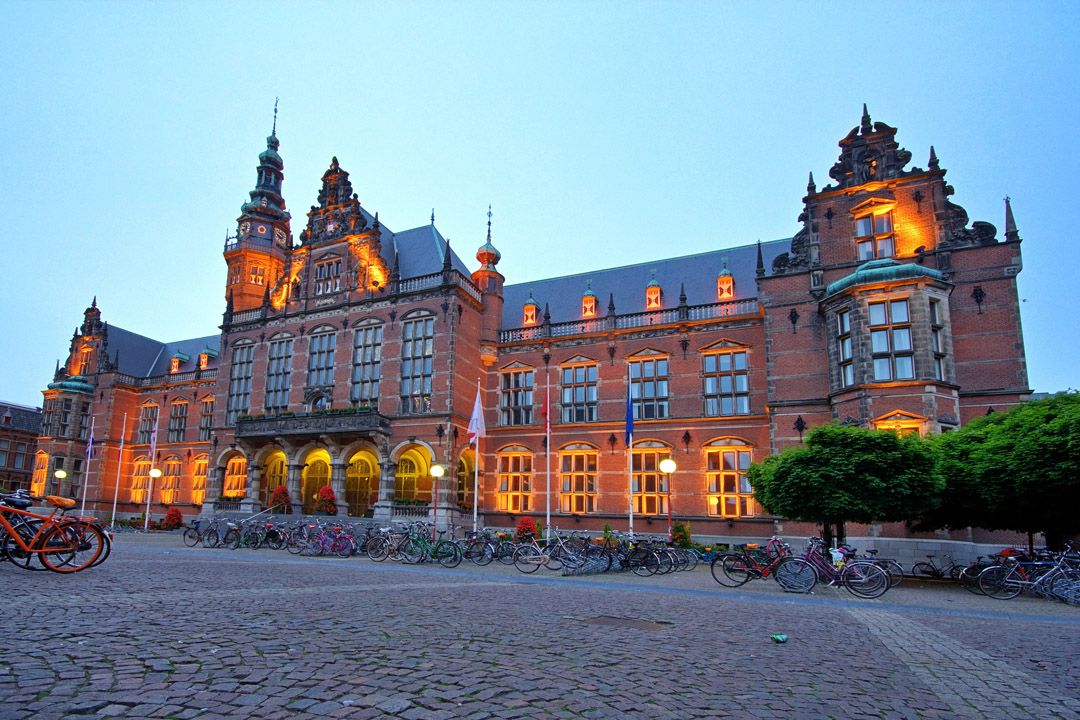
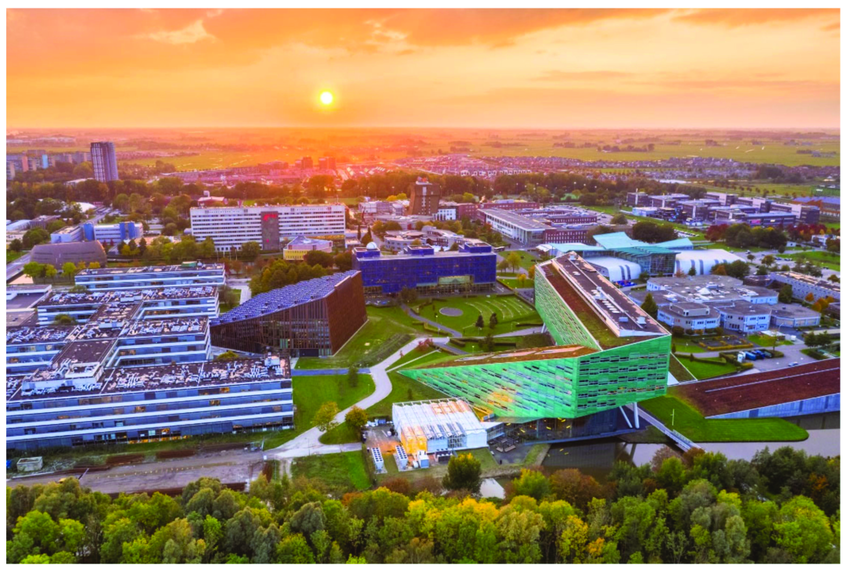
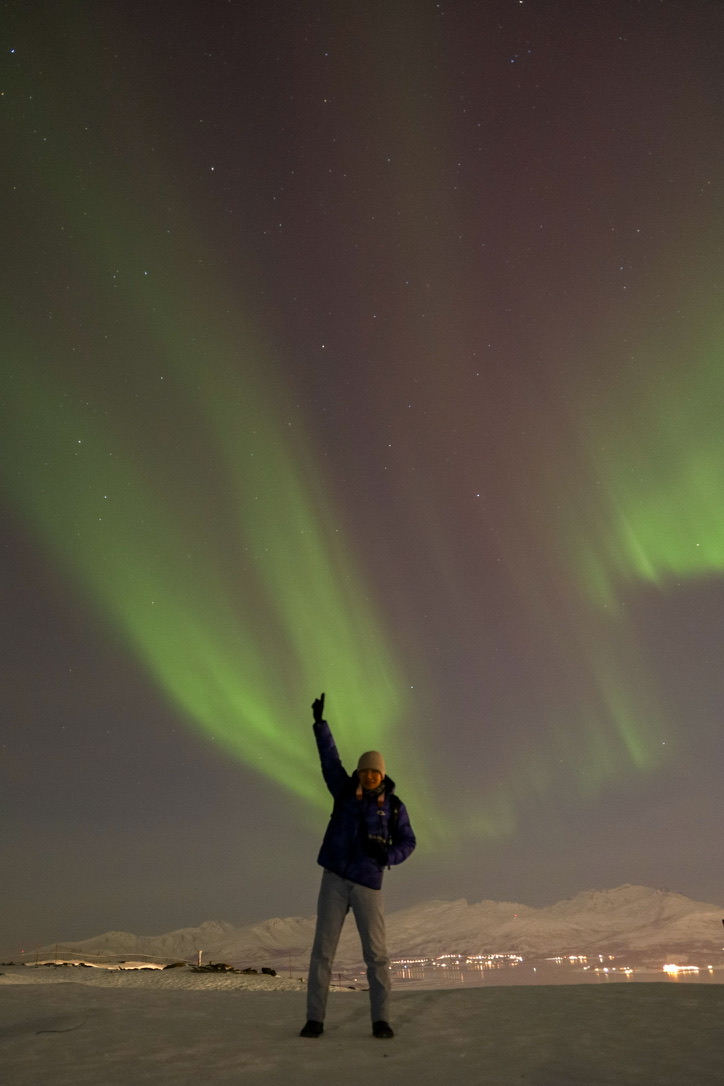
AY2023 Fellowship Guidance for new students. (For additional new students)
2023.6.20
For the additional new fellowship members guidance was held online from 11:00AM on Tue 14th June.
4 additional new fellowship members have joined.
In addition to the new additional members, this guidance was attended by several new students who were unable to attend the guidance held in April.
First, the message from the fellowship coordinator Dr. Oiwa was given, followed by a brief introduction of fellowship members.
After that, Professor Hasegawa explained the contents of the fellowship and how to receive the scholarship.
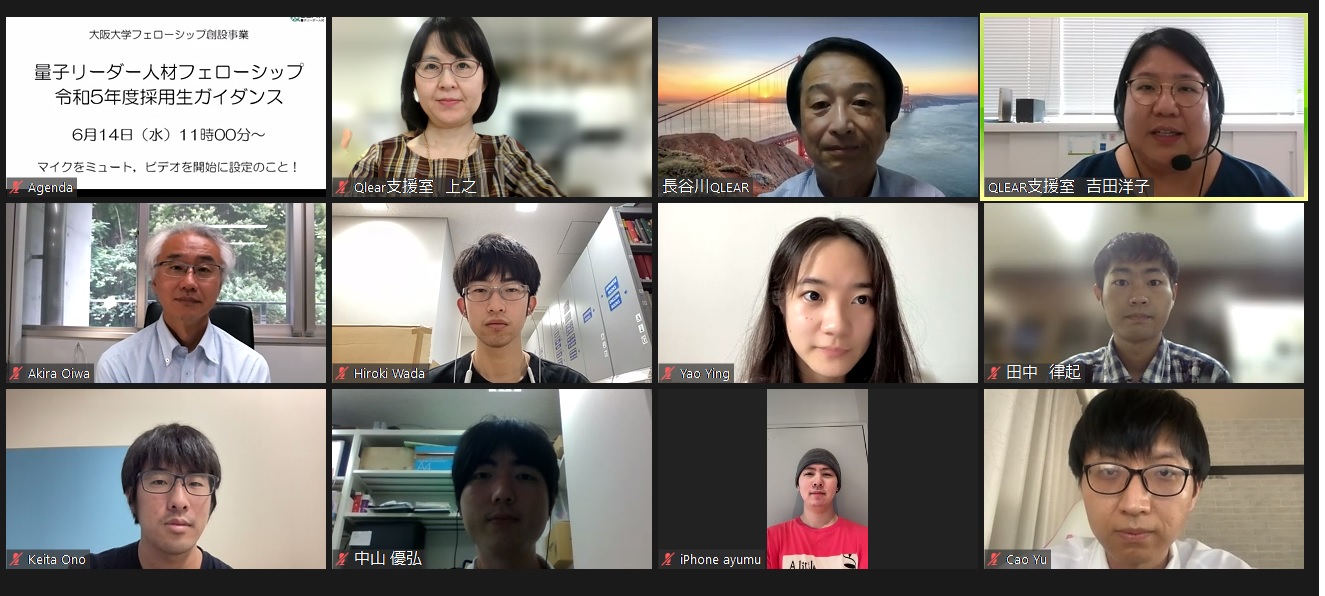
AY2023 Fellowship Guidance for new students.
2023.4.19
The new fellowship members guidance was hold at Auditorium on the 1st floor of the ISIR Administration
Building (Building A) in Suita Campus from 11:00AM on Tue 18th April.
17 new fellowship members have joined.
First, the message from the fellowship coordinator Dr. Oiwa was given.
After a brief introduction of fellowship members, the new members received notification of the fellowship members.
After that, Professor Hasegawa explained the contents of the fellowship and how to receive the scholarship.
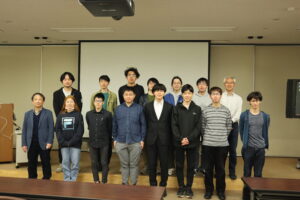
Report for Overseas Joint Research
2023.4.4
“Quantum Leader Human Resources (QLEAR)”Fellowship supports students who would like to have the overseas joint research for any quantum technology research organizations in abroad.
Please refer the report for the experiences of the overseas joint research 2022 and apply for the overseas joint research 2023.
report for the experiences of the overseas joint research 2022
Name :TERCERO JOMAR UNICO
Organization :KARLSRUHE INSTITUTE OF TECHNOLOGY
Country :Germany
Duration:JANUARY 7, 2023 – JANUARY 30, 2023
・What made you decide to do overseas joint research?
It has always been a fantastic experience discussing, listening to seminars, meeting other
students during conferences, and learning from the leading researchers in your field. When I
first learned about the opportunity to apply for the Overseas Joint Research, I did not hesitate
to apply, and I was fortunate to get accepted.
・What did you prepare for your trip through overseas joint research?
I did an intensive literature search to familiarize myself with the research problem, the
approach we want to use, and the expertise of the group I applied to join with.
・How did you feel when you actually conducted overseas joint research?
It felt great. I learned a lot from Prof. Wenzel, post-docs, and other Ph.D. students from the
group. I could also discuss other stuff, including the hardships and fun sides of being in our
field of expertise, which made me more interested since I know the challenges, I face have
been experienced by everyone.
・What was the fun and difficulty of research during overseas joint research?
Yes, I did. Conducting research has always been challenging, which makes it more interesting.
In the overseas joint research case, the main difficulty I faced was the time constraint. I only
had a month to stay in the research institution, so I needed to maximize everything to make
each meeting and discussion fruitful.
・How did you feel about relations with teachers and researchers?
The first week was primarily devoted to discussions. I maximized my 1st week of stay to discuss
with Prof. Wenzel, post-docs, and other Ph.D. students. They helped me formulate the
approach to how we can understand the problem. They gave insightful ideas and suggestions
on how we could understand the topic.
・How was your life during overseas joint research? How to arrange accommodation, living cost, how to spend vacations, etc.?
The place I stayed was nice and neat. The price was fantastic since it was the cheapest place
in the area. The location was perfect since it was just a few minutes walk to the city center,
where I could save my grocery, especially for Sundays. Sundays in Germany are like a holiday,
where mostly everything is closed. The city center is also nice since most of Karlsruheʼs
attractions are nearby. I spent some Sunday afternoons for strolls and sightseeing around the
city center and enjoying the architecture of their buildings.
・Is there anything changed such as the life, opinion, career plan after the overseas joint research?
I have learned a new approach to understanding the gas-surface interactions of periodic
systems. I have met new acquaintances with whom we can discuss our research, share
challenges, and devise ways to solve the problem, which is crucial to growing as a worthy
scientist.
・How has your experience in overseas joint research been useful after returning to Japan?
It would be of much use in continuing my research here in Japan. The discussions will
continue, and they said to contact them whenever I need comments or suggestions or have
problems with my calculations. They are always willing to help. Also, the learnings I acquired
with their group will significantly help me during my Ph.D. journey.
・How do you make use of your experience in overseas joint research in the future?
I will utilize the learnings I acquired by putting them into action. The time I spent at KIT
during the overseas joint research program was short but meaningful. I have learned a lot from
them and have had the opportunity to share my work and knowledge with other students.
・Please give some advice and messages for those who are considering overseas joint research.
Yes, I do have some. Firstly, always believe in yourself. Joining a new group could be
challenging. It is common to be nervous, but once you have connected with them, research
discussions could go smoothly, and sharing ideas wouldnʼt be as tricky as the first meeting.
Secondly, read many papers. It is essential to familiarize yourself with the works of the group
you want to join and the research methods they specialize in. Lastly, be vocal. It is common to
face difficulty in doing research. Donʼt be afraid to ask questions.
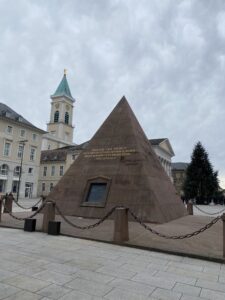
AY2022 QLEAR Fellowship Researcher exchange workshop
2023.3.29
On Feburary 28th(Tuesday) and March 8th (Wednesday), 2023, at the Nambu Yoichiro Hall of The University of Osaka Toyonaka Campus, AY2022 Researcher exchange workshop by the face-to face format was held. The contents of the program are 2 invited lectures and presentations of fellowship students (21 oral presentations and 40 poster presentations). In addition to welcoming invited speakers from outside,
a total of 112 people attended the two-day event.
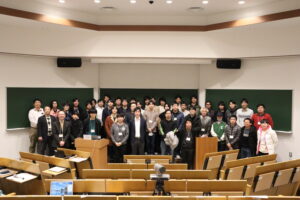
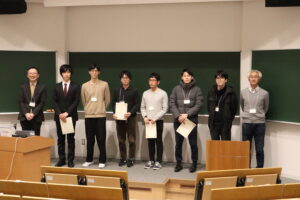
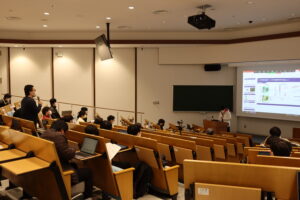
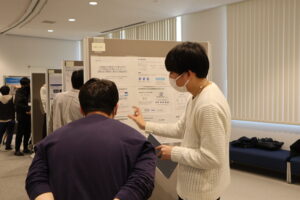
Report for Overseas Joint Research
2022.6.9
“Quantum Leader Human Resources (QLEAR)”Fellowship supports students who would like to have the overseas joint research for any quantum technology research organizations in abroad.
Please refer the report for the experiences of the overseas joint research 2021 and apply for the overseas joint research 2022.
report for the experiences of the overseas joint research 2021
Name :Sun Siyuan
Organization :Imperial College London
Country :United Kingdom
Duration:2021.12.01-2022.02.28
・What made you decide to do overseas joint research?
It was the time that my study should be applied into simulation framework, which the software group of our experiment is at Imperial College London. I saw the invitation of joint research support from QLEAR office, I immediately decided to apply for it.
・What did you prepare for your trip through overseas joint research?
I needed to contact the professor at UK asking if he will accept me as a joint researcher, then prepare for VISA, buying flight ticket, insurance, also PCR test as the special period for COVID. The most time-costing part is finding accommodation.
・How did you feel when you actually conducted overseas joint research?
It was a great experience. The difference of culture between Europe and Asia impact me a lot. I met many brilliant students at Imperial College London, and they are all very friendly. I fill it’s more efficient to work there.
・What was the fun and difficulty of research during overseas joint research?
The attitude to research at Imperial College London is very different. PhD students are very happy to ask dumb questions, they just ask what they don’t know or forgot, which I feel a little hard to do so.
・How did you feel about relations with teachers and researchers?
Yoshi is a very friendly person. I feel relax when talking with him, I can say what I exactly want to say, he will give me advice as a friend, instead of as a professor, or boss.
・How was your life during overseas joint research? How to arrange accommodation, living cost, how to spend vacations, etc.?
To be honest the environment of where I lived is not so good. I was a share house living with the owner, I chose it because it was cheap so that I can afford with the limited travel budget. The daily cost is also higher than Japan.
・Is there anything changed such as the life, opinion, career plan after the overseas joint research?
Firstly, I feel my English is improved a little, that of course because I talked with UK people. I also became a better programmer after working there, which will help me to do my research more efficiently.
・How has your experience in overseas joint research been useful after returning to Japan?
What most impact me is the working style difference between UK and Japan, now I can research more efficiently without wasting time on doing things that doesn’t matter. I would like to suggest our Lab. also change the working style.
・How do you make use of your experience in overseas joint research in the future?
I will consider finding a postdoc position at Europe. I only thought about finding a postdoc at Japan before I went to UK, but now I changed my mind.
・Please give some advice and messages for those who are considering overseas joint research.
I think it’s a good chance to study abroad, see different culture, work with different people, and you will have new ideas and considerations. It’s also a good chance that you can seek the potential career path, widen the choices you can make after your graduated.
Most important, be brave. If you are hesitating whether apply for joint research, just do it and see what happens.
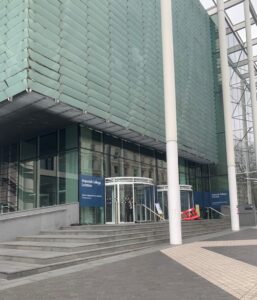
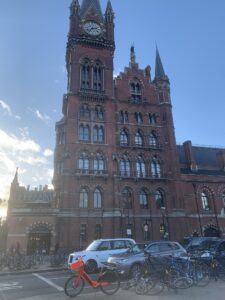
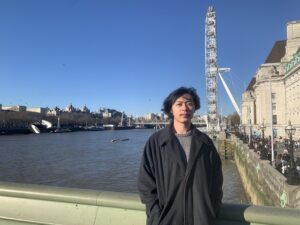
AY2022 Fellowship Guidance for new students.
2022.4.20
The new fellowship members guidance was hold at Auditorium on the 1st floor of the ISIR Administration
Building (Building A) in Suita Campus from 1:30 PM on Tue 19th April.
21 new fellowship members have joined.
First, the message from the fellowship coordinator Dr. Oiwa was given.
After a brief introduction of fellowship members, the new members received notification of the fellowship members.
After that, Professor Hasegawa explained the contents of the fellowship and how to receive the scholarship.
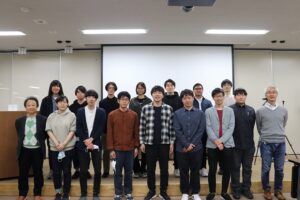
AY2021 QLEAR Fellowship Researcher exchange workshop
2022.3.8
On March 8th (Tuesday), 2022, at the Nambu Yoichiro Hall of The University of Osaka Toyonaka Campus, AY2021 Researcher exchange workshop by the hybrid format (oral lecture: Yoichiro Nanbu Hall and online, poster presentation: online) was held. The contents of the program are 2 invited lectures and presentations of fellowship students (4 oral presentations and 24 poster presentations). In addition to welcoming invited speakers from outside, external company researchers participating in the Quantum Software Research Center 68 participants (40 graduate students, 28 faculty members and researchers) for oral lectures, 65 participants (33 graduate students, 33 graduate students) for poster presentations. It was carried out with 32 faculty members and researchers).
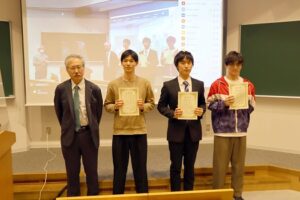

AY2021 Abstract
2022.3.3
We are pleased to announce the abstracts of the 2021 QLEAR Fellowship recipients.
Please download from above.
QLEAR2021Researcher Exchange Meeting abstract
* A password is required to download.

